Visit Date: October 20, 2019, approximately 3:00 p.m.
Ivrea, Piedmont, roughly an hour north of Turin, this small town was chosen as a World Heritage Site in July 2018. It is located as you can see. It looks cold in winter.
When we think of World Heritage sites, we often think of ancient ruins or beautiful townscapes that have been around since the Middle Ages, but this place was chosen as a World Heritage site because a certain industry flourished here in the 20th century.
City of Typewriters
The town of Ivrea is the birthplace of a company called Olivetti, which may sound familiar to you if you’re old enough. Olivetti is a company that became world-famous for its typewriters.
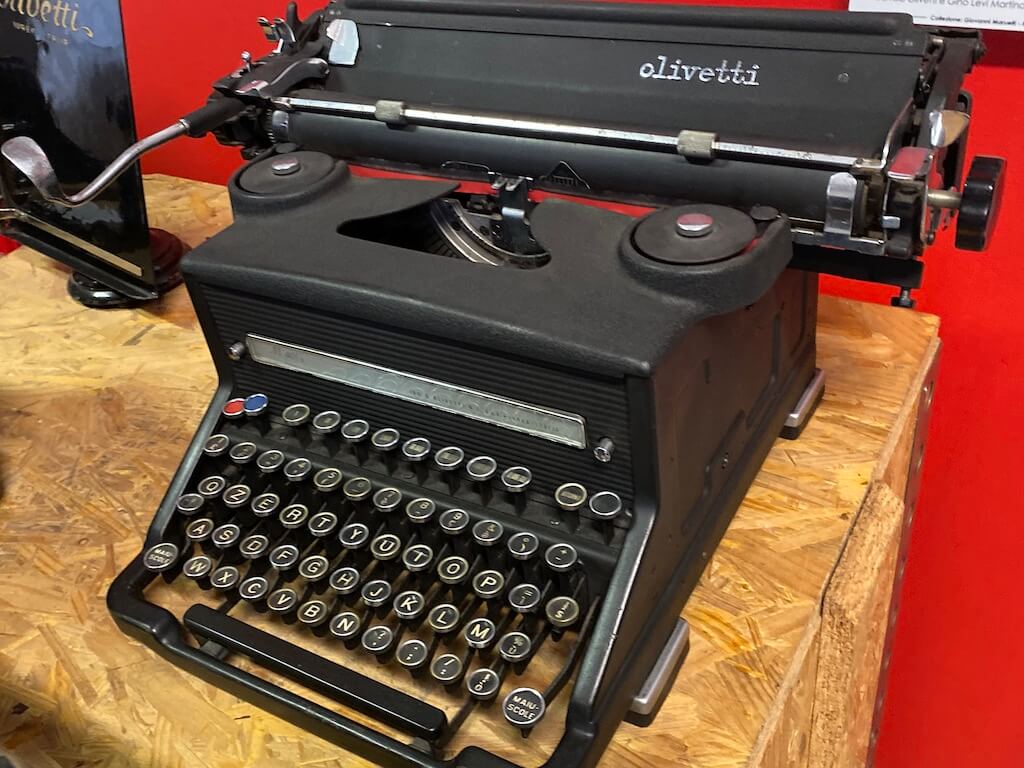
Olivetti was a company that took the world by storm by creating the standard form of typewriter, as shown in the photo above. The Olivetti Company was founded by Camillo Olivetti in 1908 in this city. As mentioned above, it is a representative company of the 20th century that created the standard form of typewriter. It was also Olivetti who created the prototype of the PC keyboards that we use today as a matter of course.
Ivrea is a lovely medieval town, but in the twentieth century it has developed greatly with Olivetti. The old town is located on the north side of the river that runs through the city, while the new town is located on the south side of the river and is home to many modern buildings, including Olivetti’s headquarters. We first went to the New Town area.
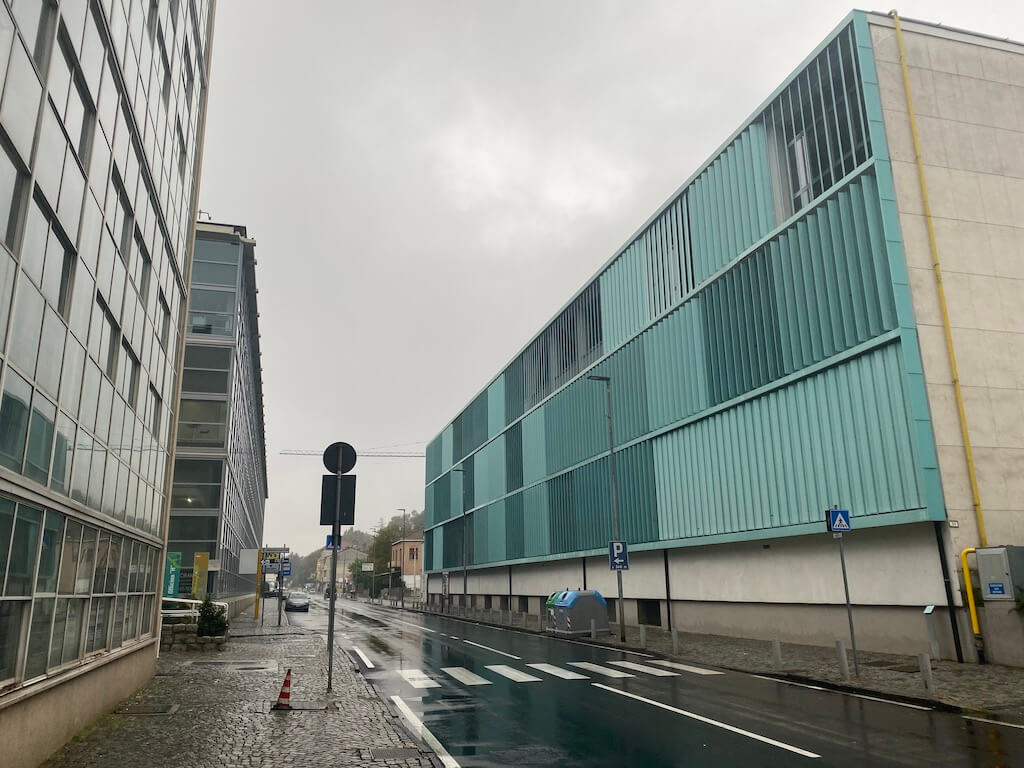
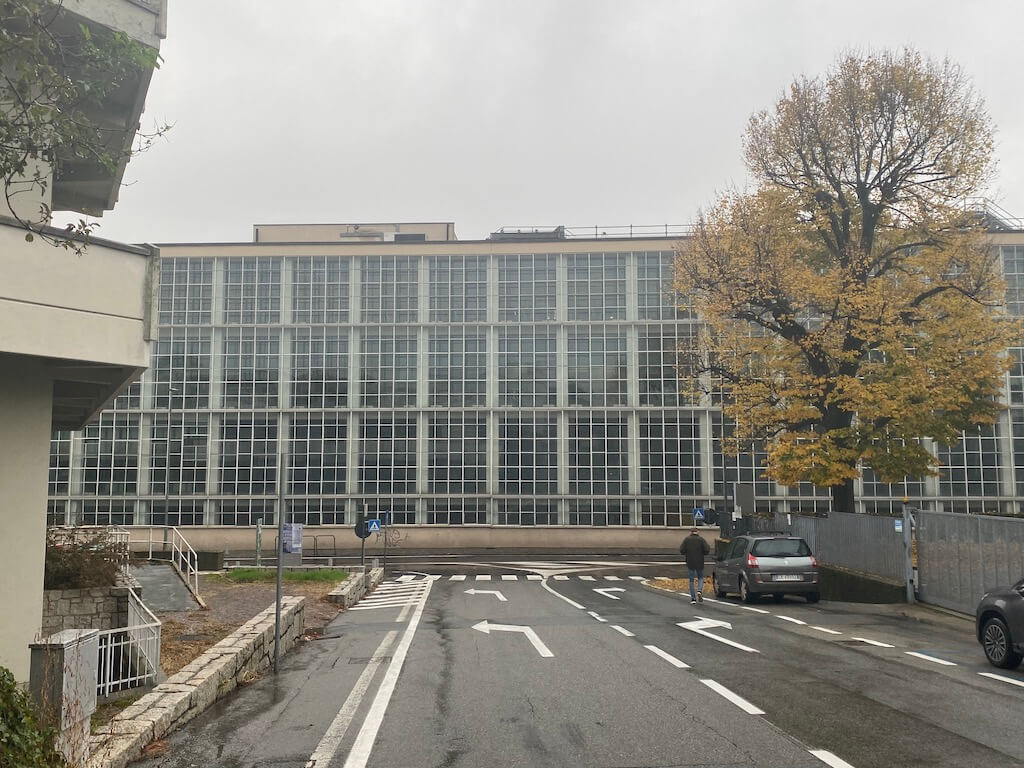
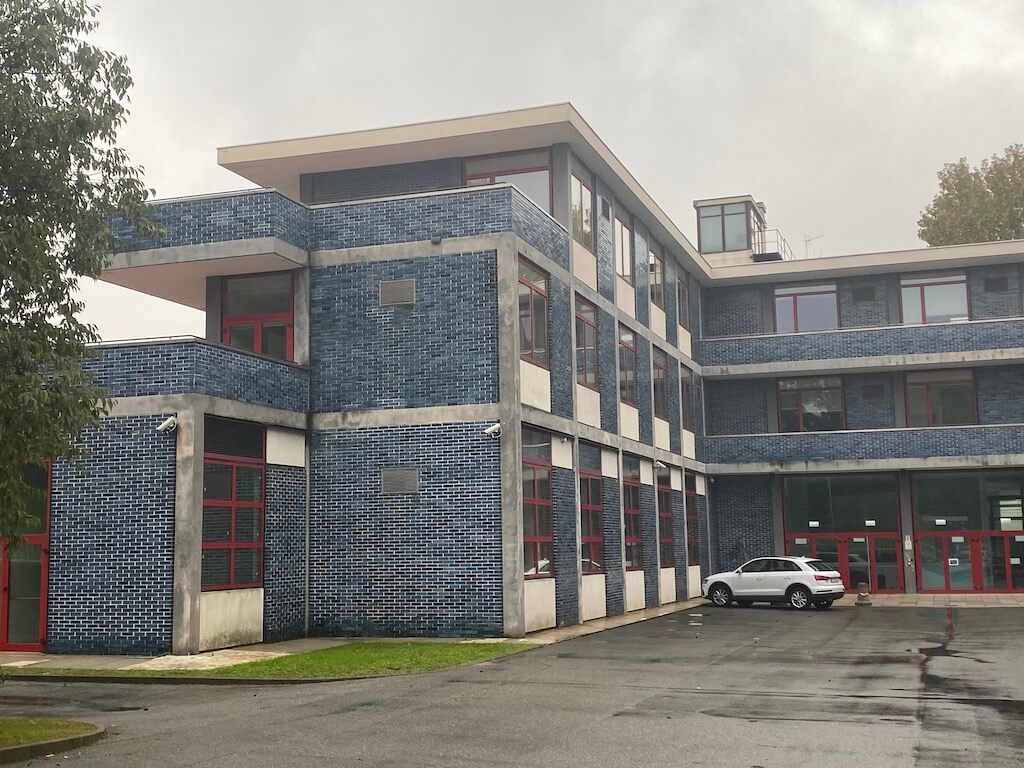
These buildings were mainly designed between 1930 and 1960 under the direction of Adriano Olivetti. They housed not only the company’s headquarters but also public services and residences. Many of them are still inhabited today.
I heard that this place is also a World Heritage Site. Unfortunately, it was raining, but I was a little disappointed to see such a scene as you see.
Furthermore, since it was a Sunday, we were not allowed to enter the building. You can see the building from the outside, and there are some boards explaining the company, but this is not fun at all.
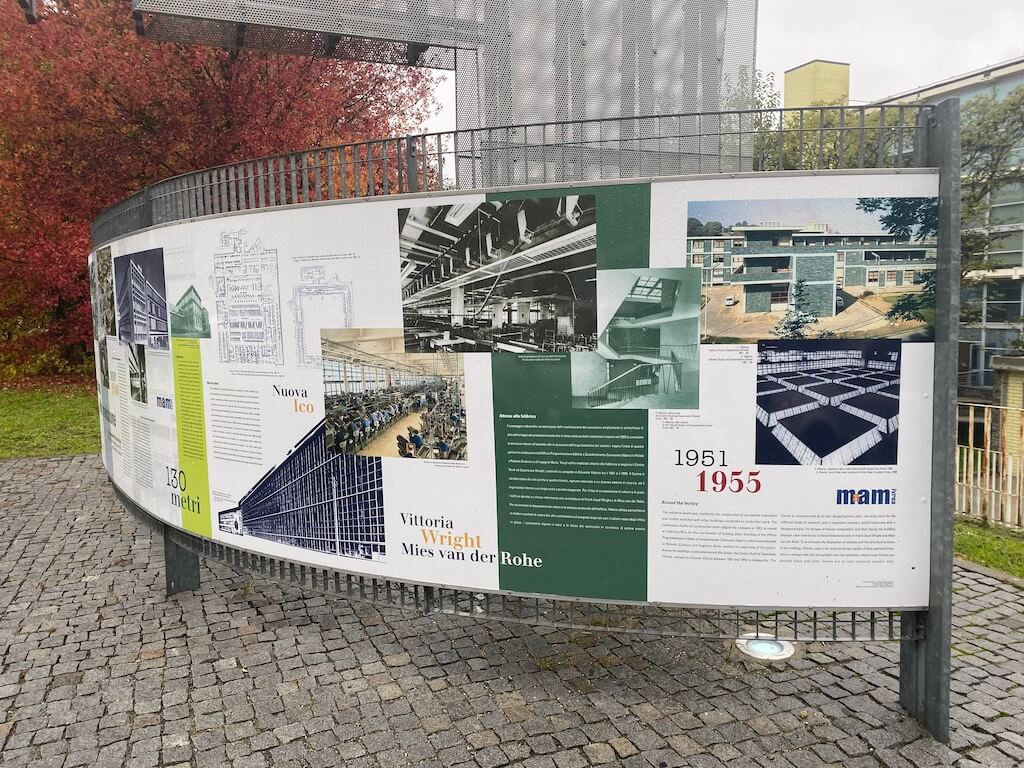
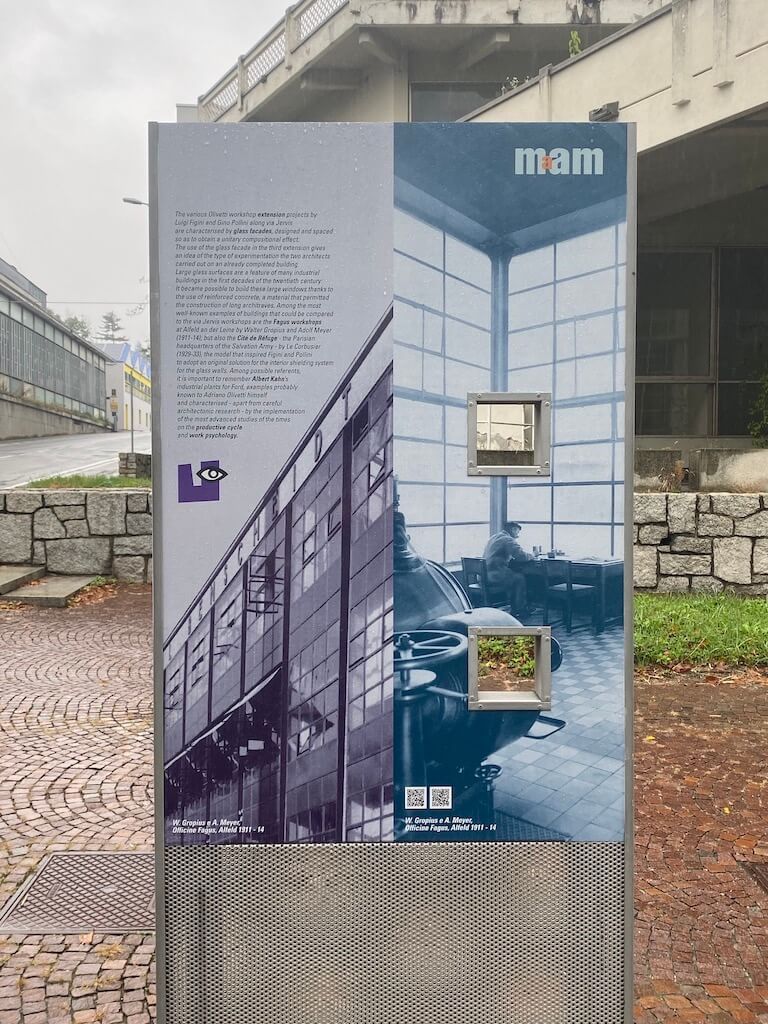
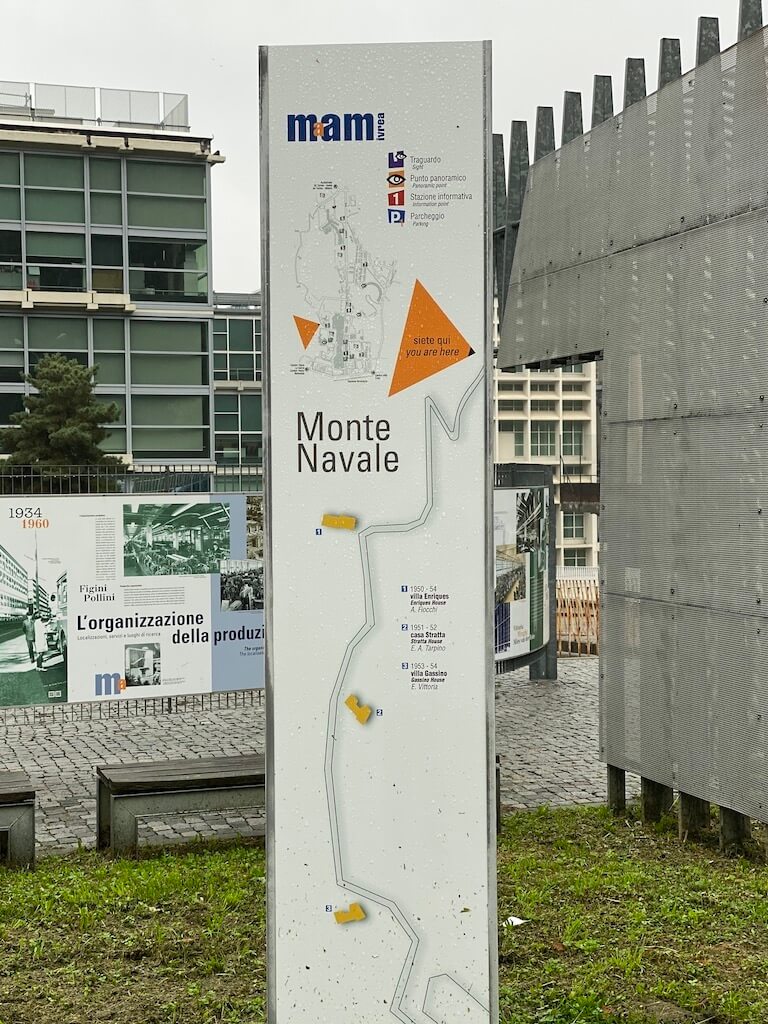
Could it be a disappointing World Heritage Site? I thought so until I visited the museum in the city.
Visit the museum to learn the history of typewriters
Anyway, I thought there was no other interesting place, I returned to the car once and headed to the old town for the time being. The old town was a beautiful cityscape as reputed, but this day was very few people on Sunday and most of the shops were not open and deserted.
However, according to Google Map information, there is a museum in the old town called Laboratorio-Museo about Ivrea’s industry, and it seems to be open even on Sundays, and our arrival was just before 15:00, but it seems to be open from this time just after lunch break, so we decided to go there. We decided to go there.
博物館のウェブサイト:Laboratorio-Museo Tecnologicamente
I immediately went to the point where Google map shows (
Laboratorio-Museo Tecnologic@mente Piazza S. Francesco D’Assisi, 4, 10015 Ivrea TO
It is a museum. However, when I arrived there, I found that it was a museum, but there was no magnificent entrance or signboard, just an ordinary building with a back entrance. I was worried if I was really in the right place, but I went inside and headed for the first floor (the second floor in Japanese style), where I found an exhibition of typewriters.
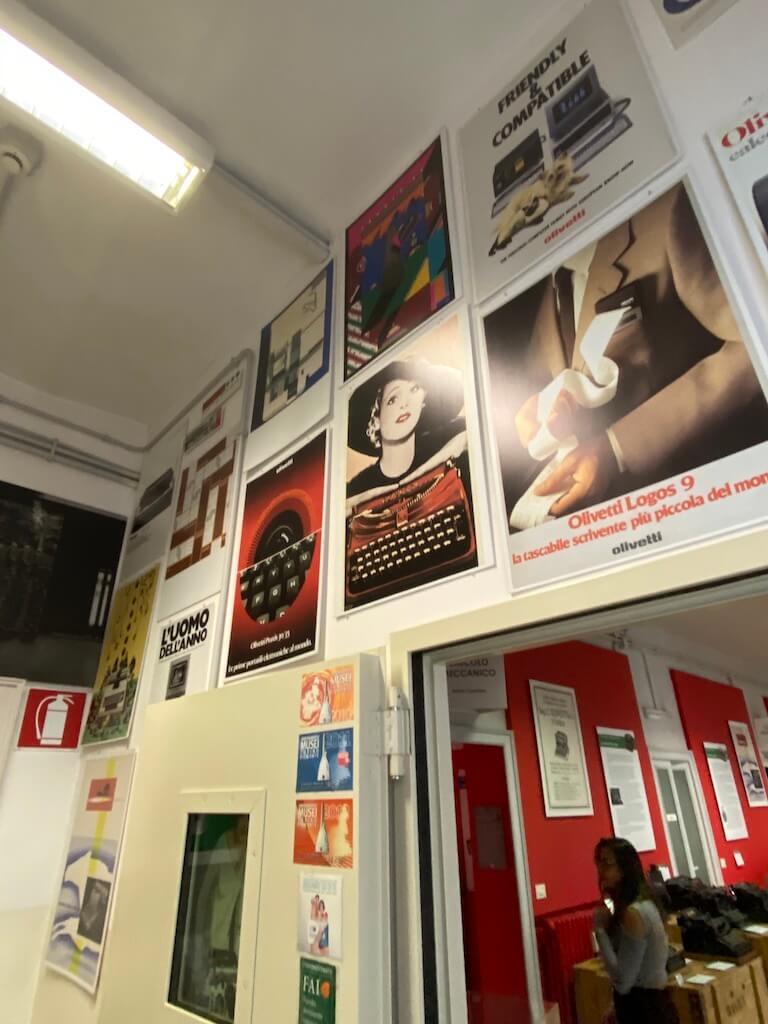
When I was confused, a young lady and her brother appeared from inside, and the lady could speak English, so she took care of us. The entrance fee was 7 euros, and they told us that I could guide us if we wanted.
The first thing he did was to explain the history of Olivetti by looking at some of the old posters he had put up at the entrance. He gave us a brief history of Olivetti. Then we went inside, where he explained how the early typewriters were made while looking directly at the typewriter display.
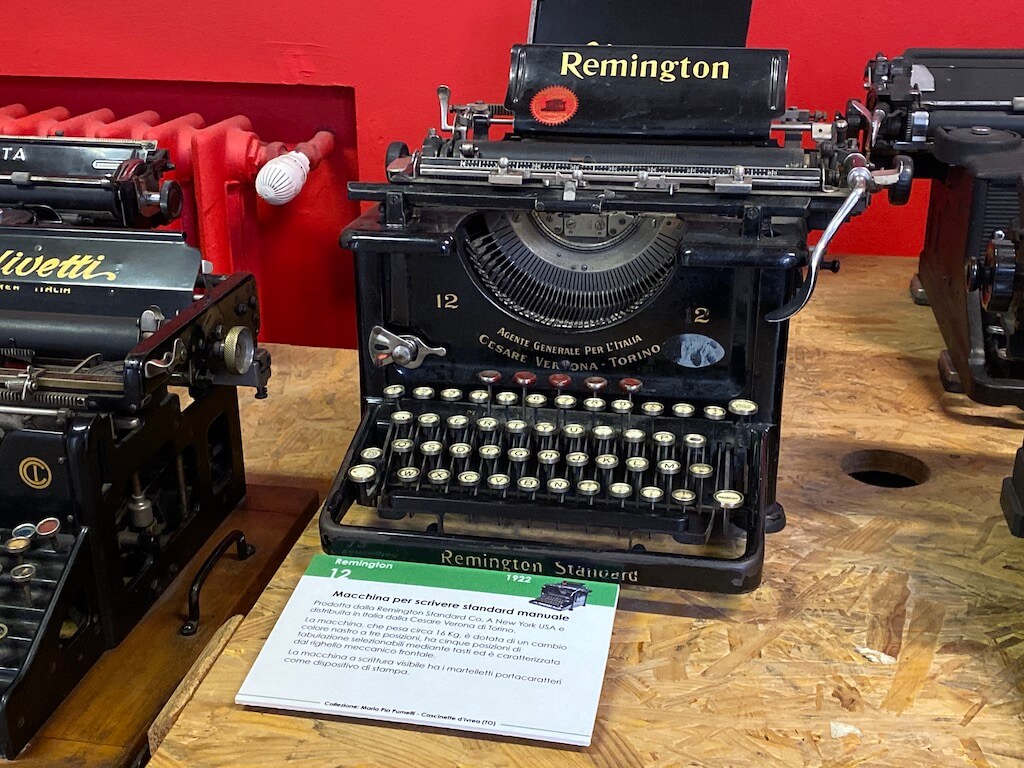
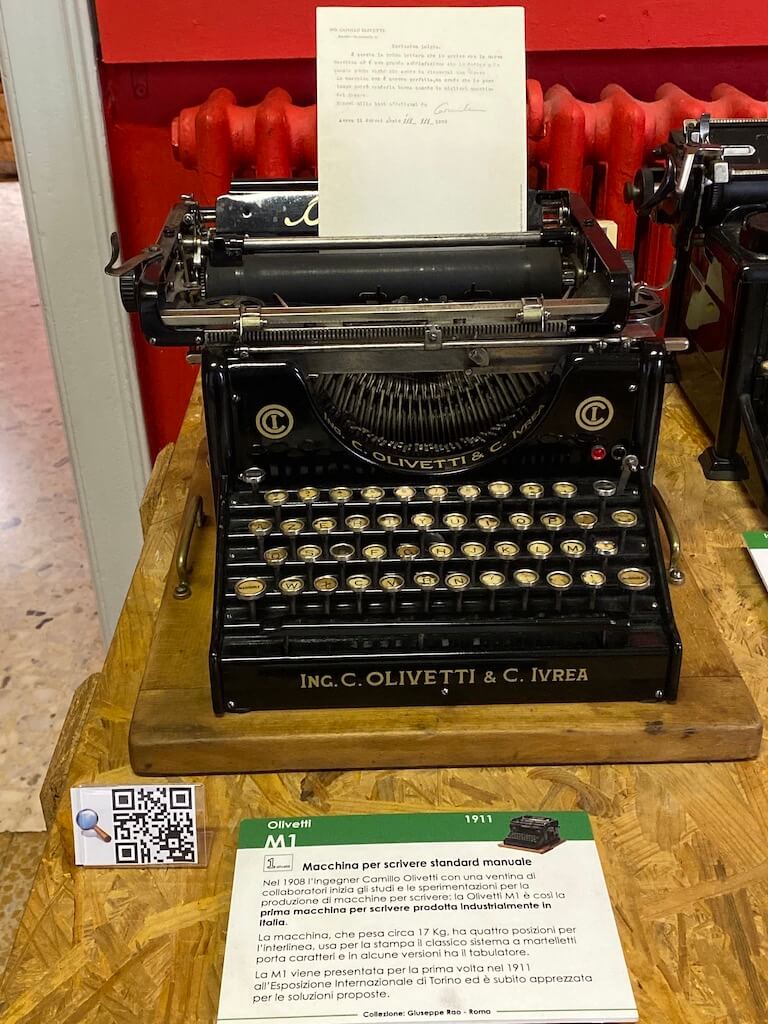
The typewriter itself seems to have existed before Olivetti was founded. They were already being made in Germany and other countries.
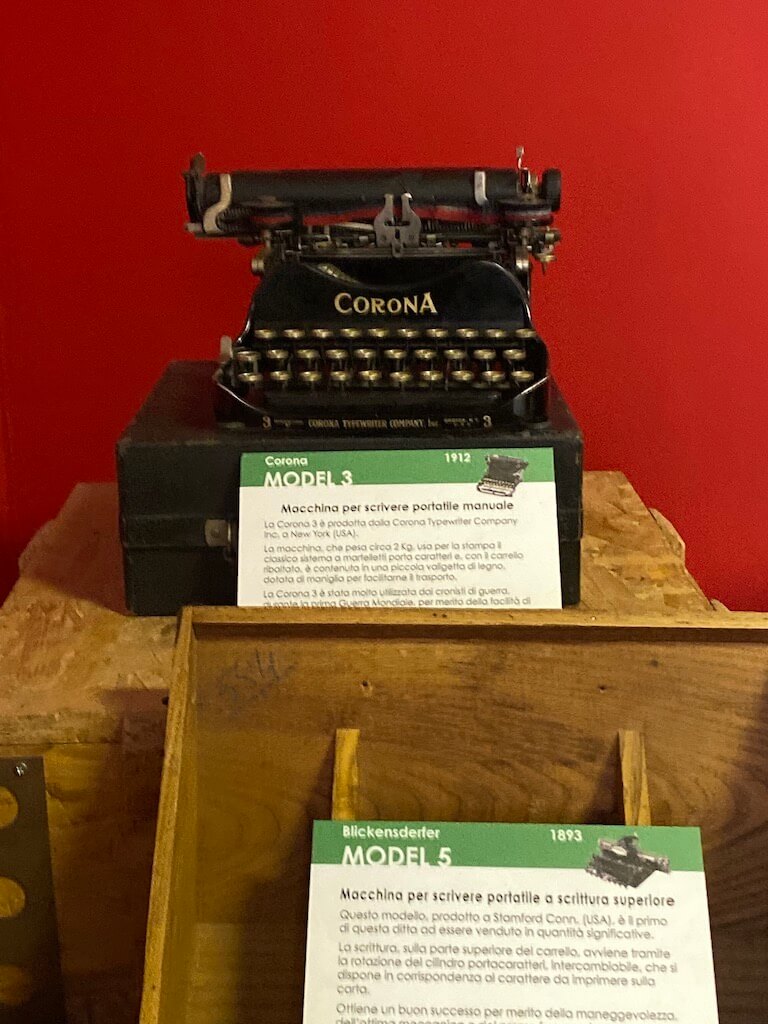
However, it was still an inefficient machine, not a keyboard type as we know it today. It was Olivetti who evolved the keyboard into the type of input that is the standard today. At that time, he decided the keyboard layout based on which alphabets were used the most.
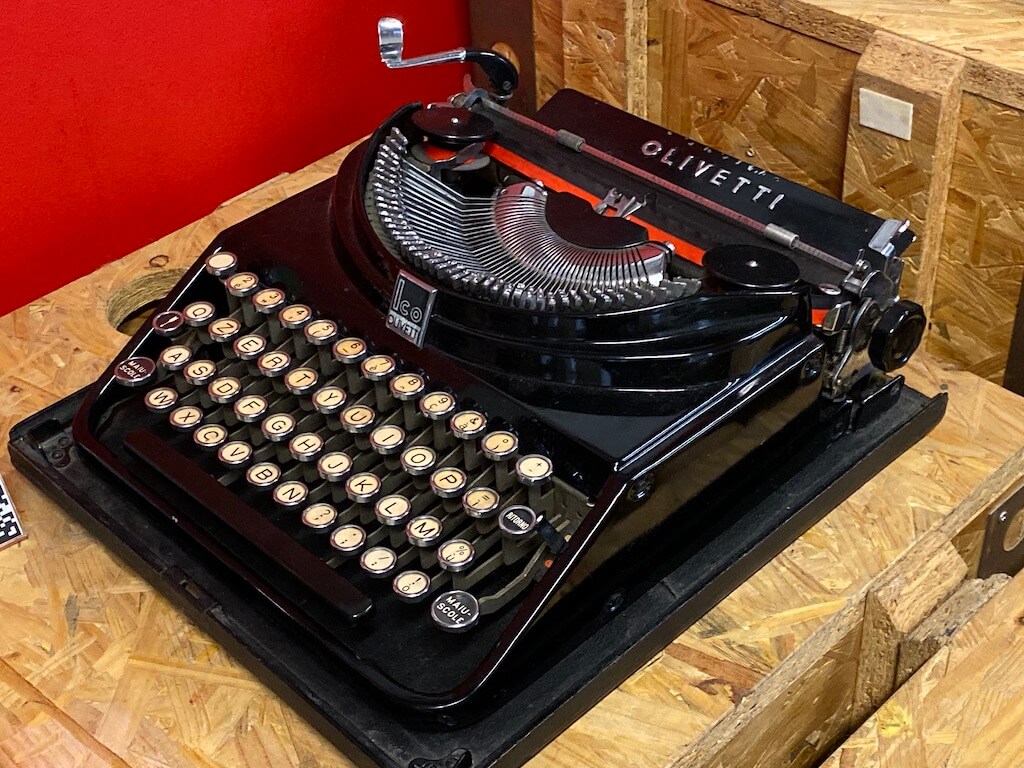
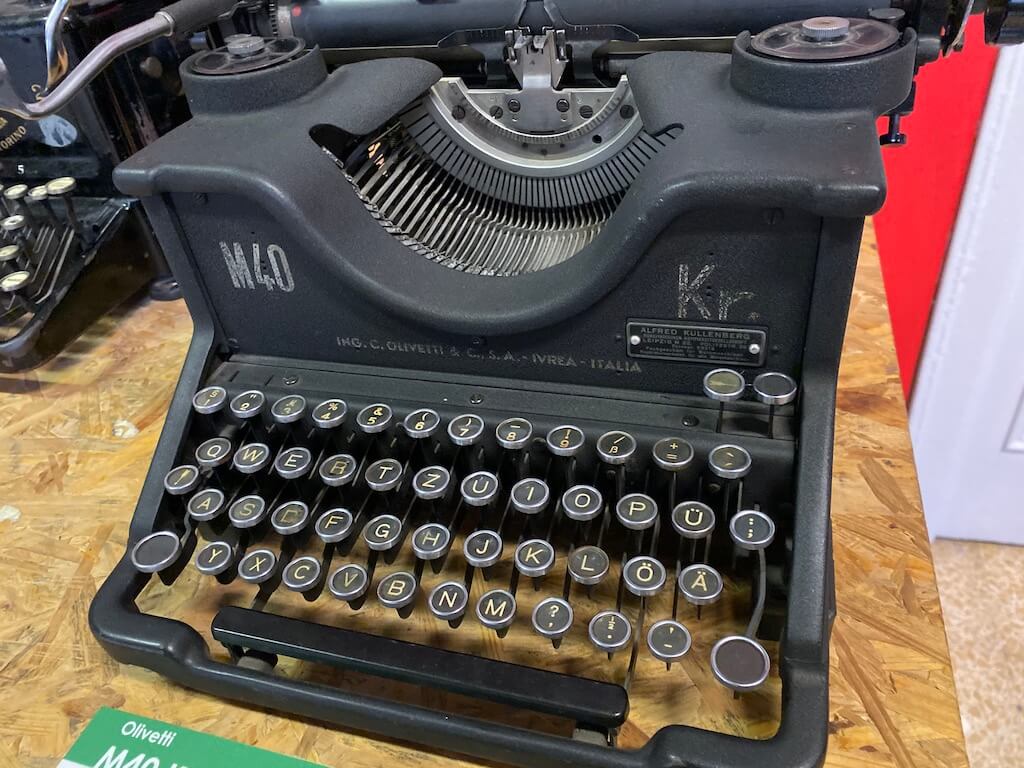
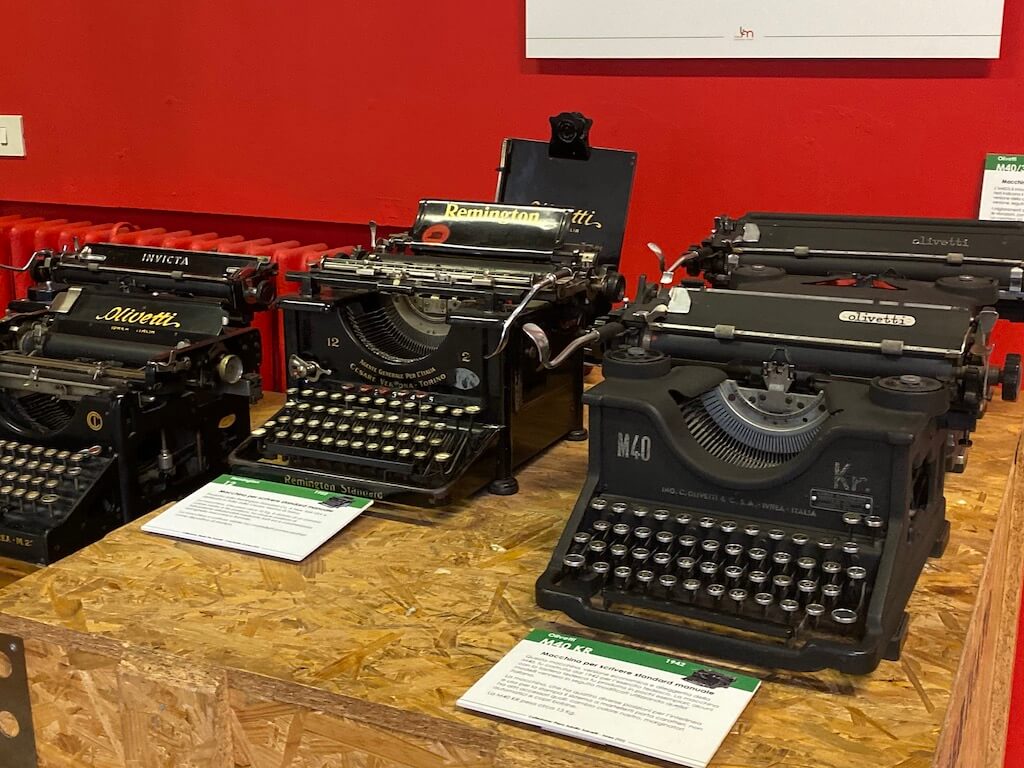
If you’ve ever seen a typewriter, you know that it works like this, but it seems that Olivetti developed this too. It seems that Olivetti developed the typewriter, too (or so the guide lady said, but I’m not sure if she was right).
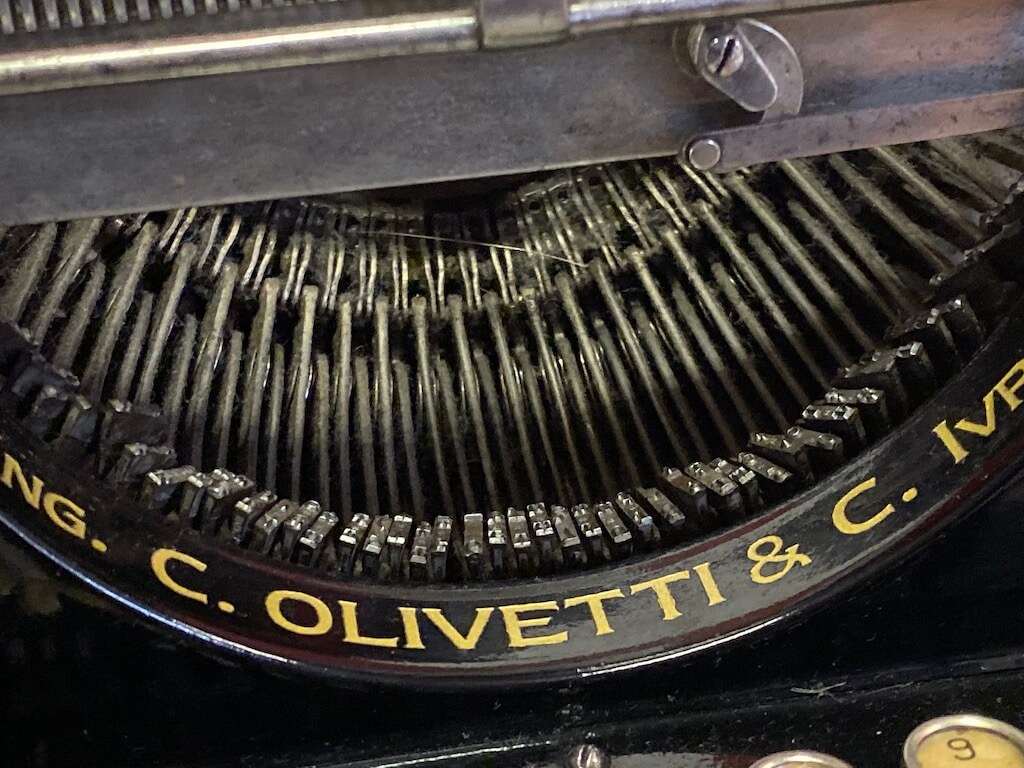
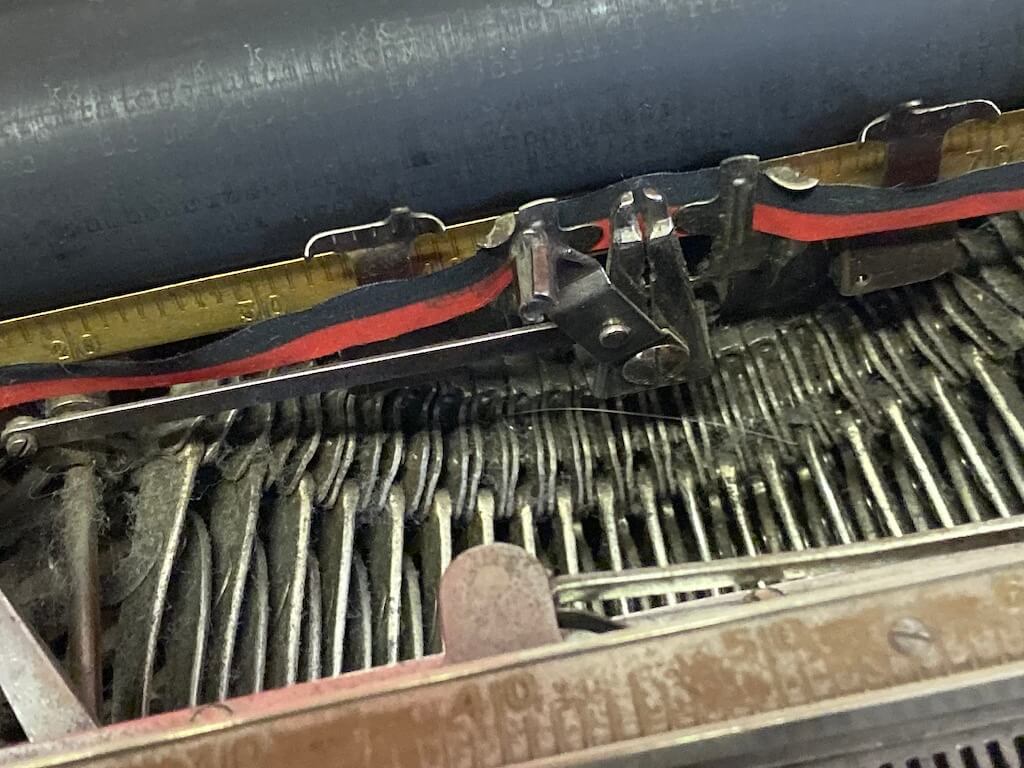
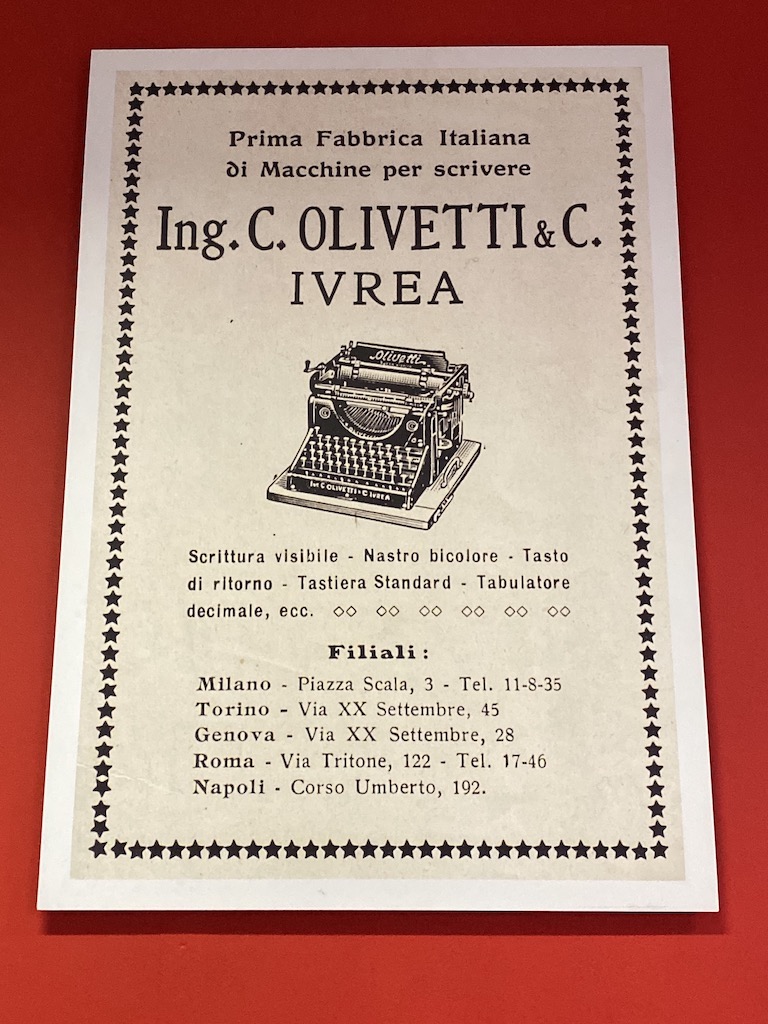
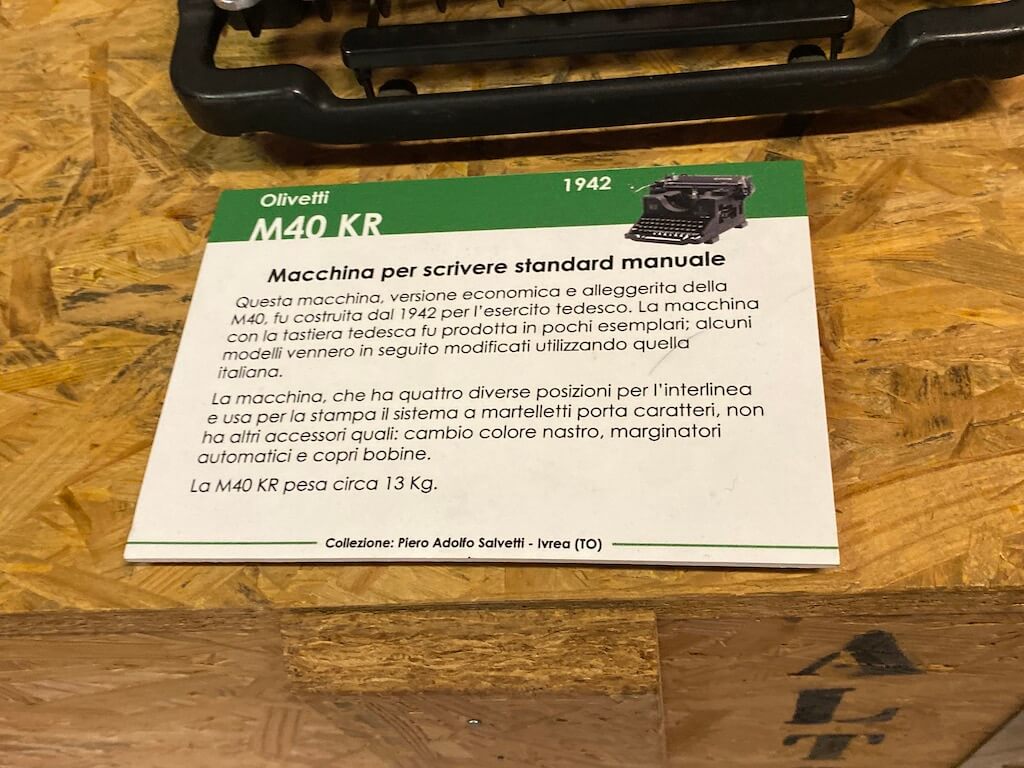
This is how the Olivetti typewriter was born and quickly spread around the world. The first typewriters were made of metal and weighed nearly 10 kg. I actually held one of the early typewriters on display, and it was very heavy.
After that, however, the weight was reduced and portable typewriters were born. Among them, the one that took the world by storm was the “Valentine,” a portable typewriter in a red plastic case that was born in 1969.
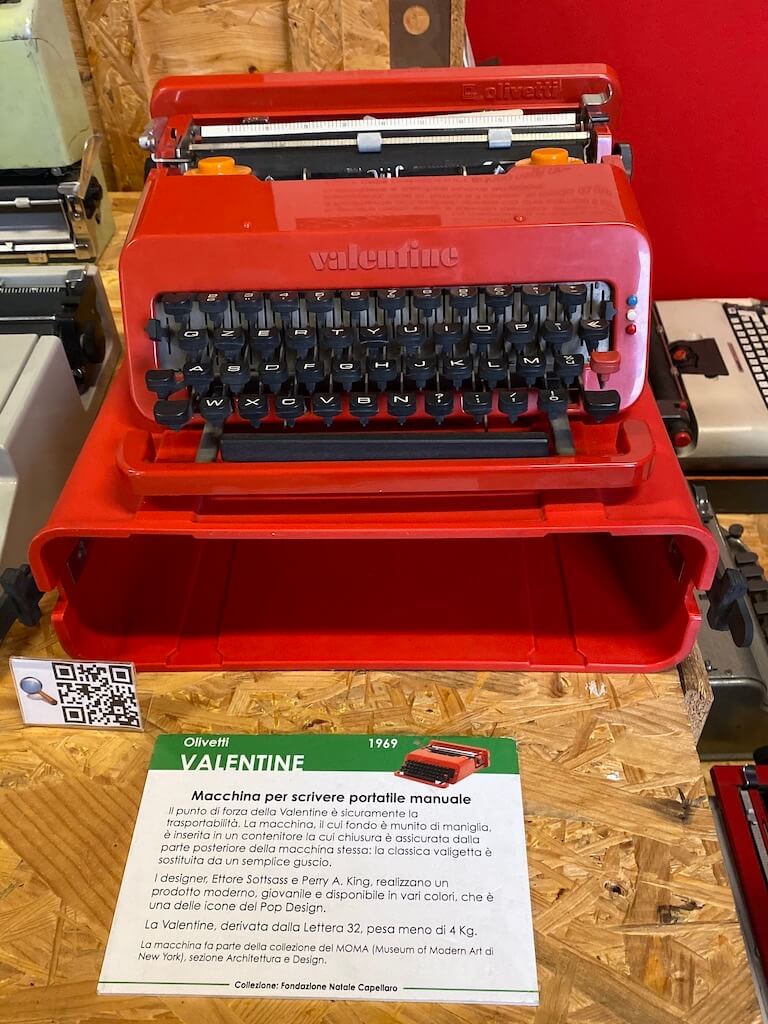
It is said that this very pop appearance was a revolutionary design at the time. Of course, this one was also on display, and we were able to actually hold it. You can carry this with you.
After that, we continued to produce lighter and more sophisticated products one after another.
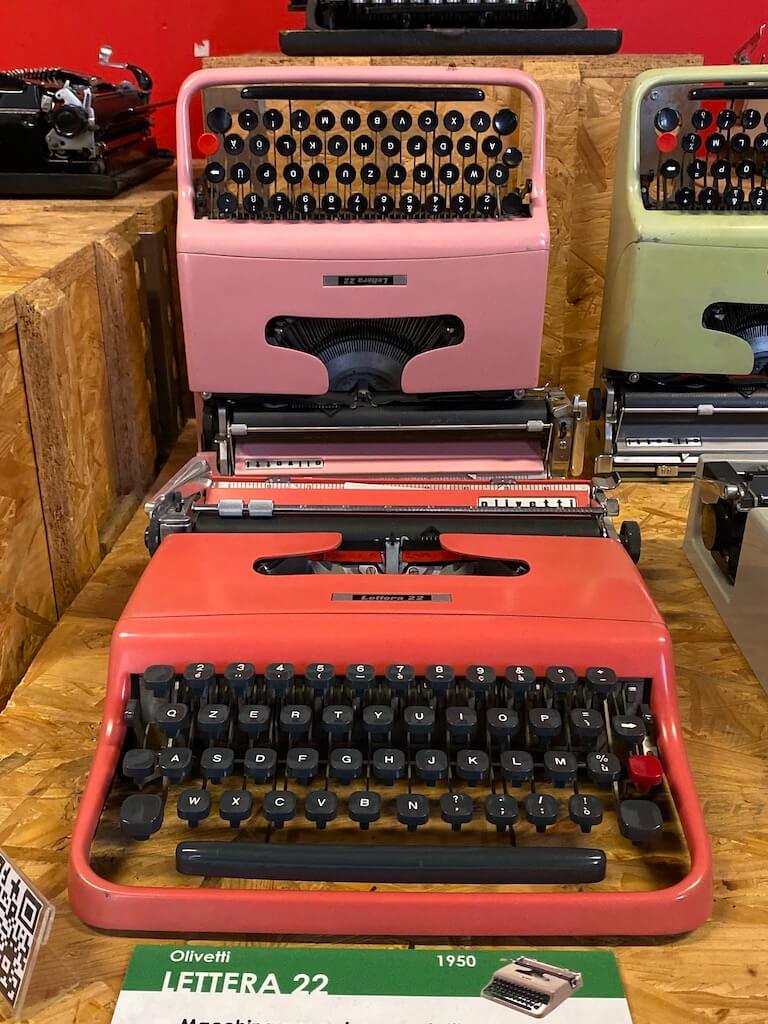
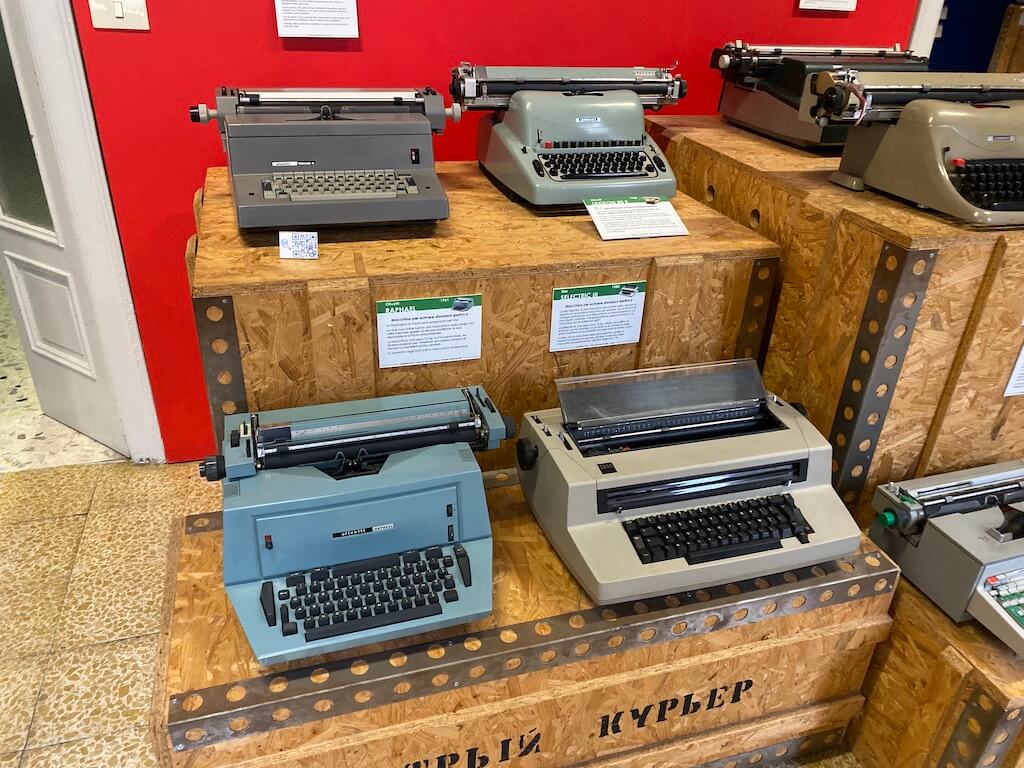
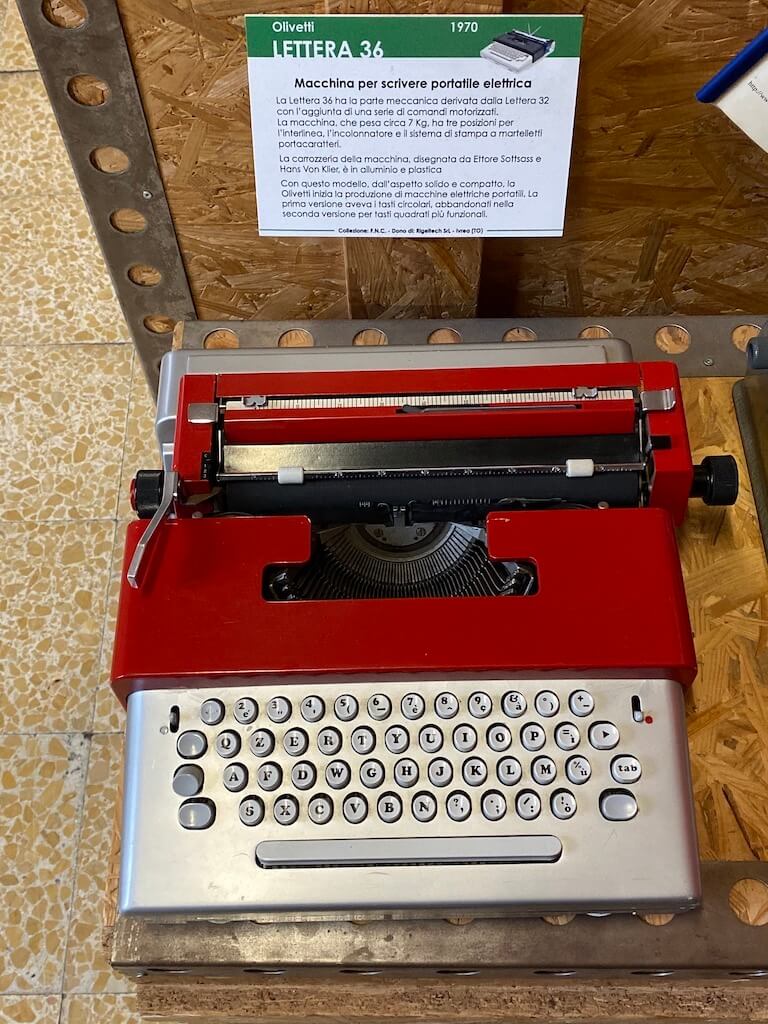
This is where the calculator was born.
Before I visited Iblea, I knew from guidebooks that this city was the birthplace of the typewriter, but in fact, I learned from this museum that the city was also a pioneer in the field of calculators.
Our company is so famous for producing typewriters, but we were also the first in the world to produce calculators and desktop computers. In other words, it is not an exaggeration to say that we are a great company that created the common sense of our life in the 21st century.
The Divisumma, the world’s first motorized recording desk calculator developed by Olivetti, was launched in 1948. The main person who developed it was a man named Natale Cappellaro.
Of course, I was able to see the actual machine of that time here. It is easy to see at a glance that the structure is much more complicated than a typewriter.
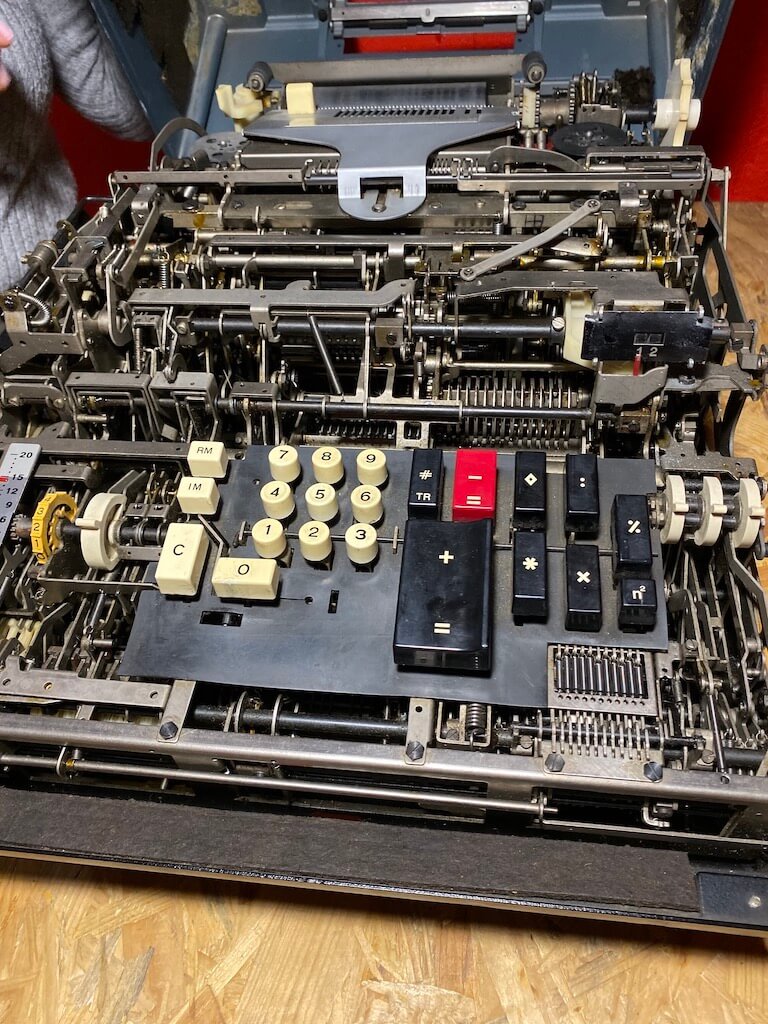
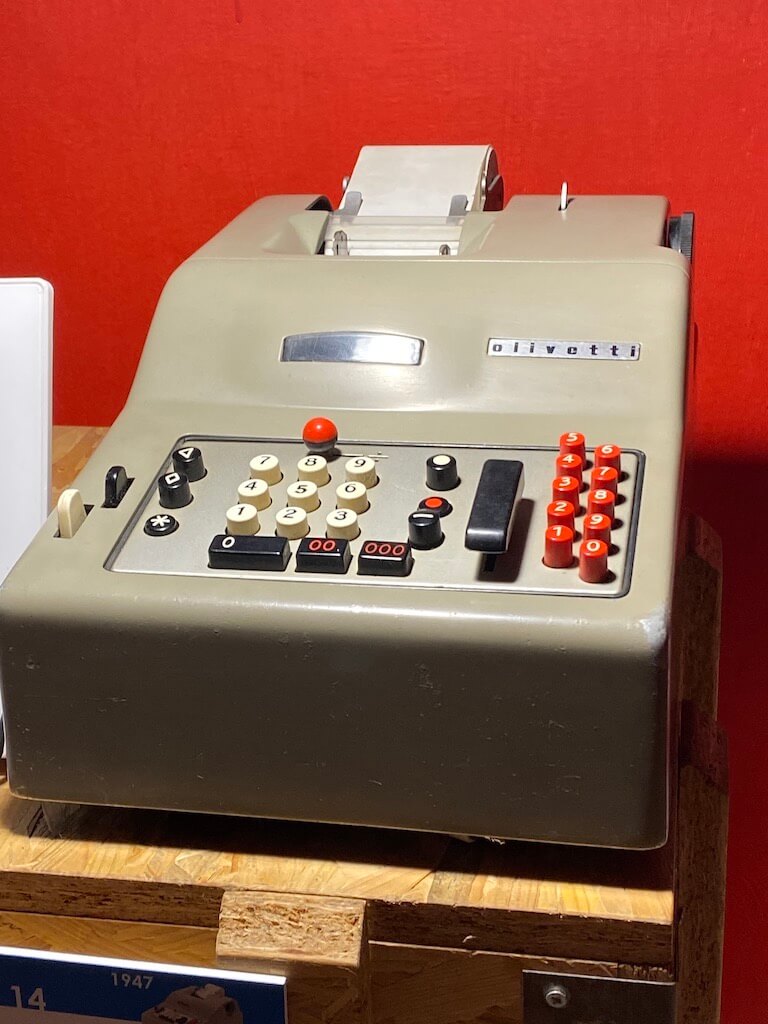
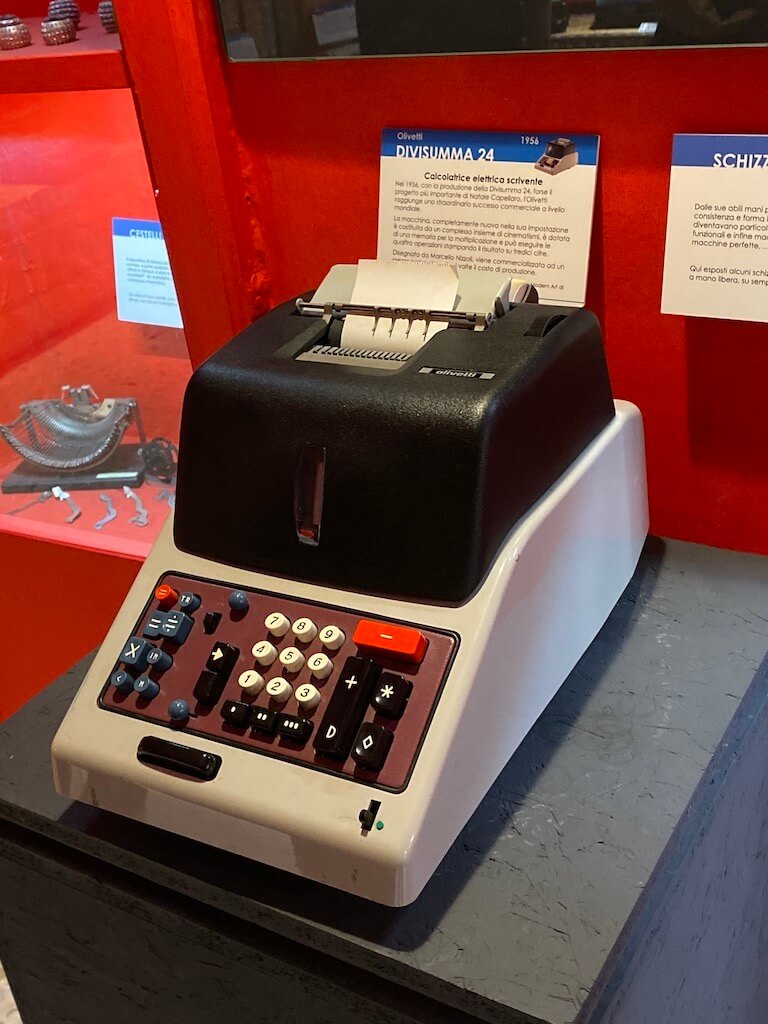
By the way, there is a story that Enrico Fermi, a very famous Italian theoretical physicist, strongly advised to develop this calculator.
In the late 1950s, the world’s first commercial transistor calculator, the Elea 9003, was developed.
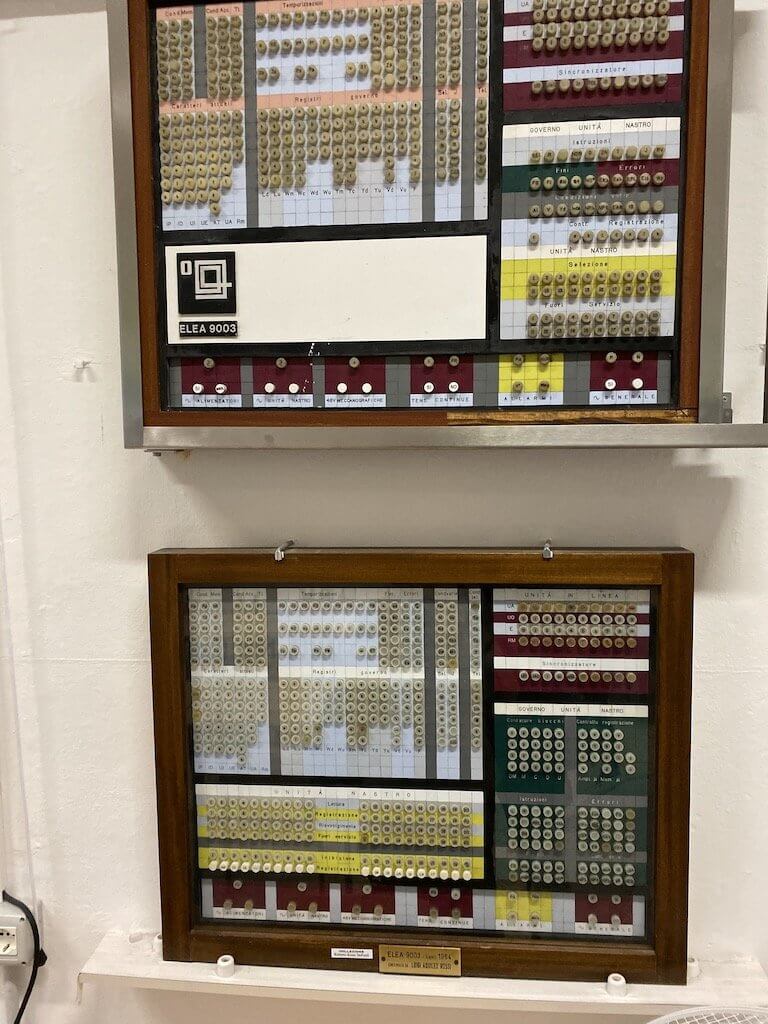
ちなみにスペックは、1秒に8回から10000回の処理が可能だったということ(wikipediaより)。ちょっとわかりづらいですね。ただ開発後数年間は競合他社を圧倒していたようです。
ちなみに2代目のELEA9003は現在でも動くそうで、実機がイタリアの工科学校「I.S.I.S “Enrico Fermi” di Bibbiena」に現存しています。

Development of the world’s first desktop computer
Then, in 1967, Olivetti released one of the most notable products in the company’s history. It was the world’s first desktop computer, the Programma 101. It was the originator of the personal computer (PC). The price at the time was 1.59 million yen, and of course we were able to see the actual machine, which was a huge computer.
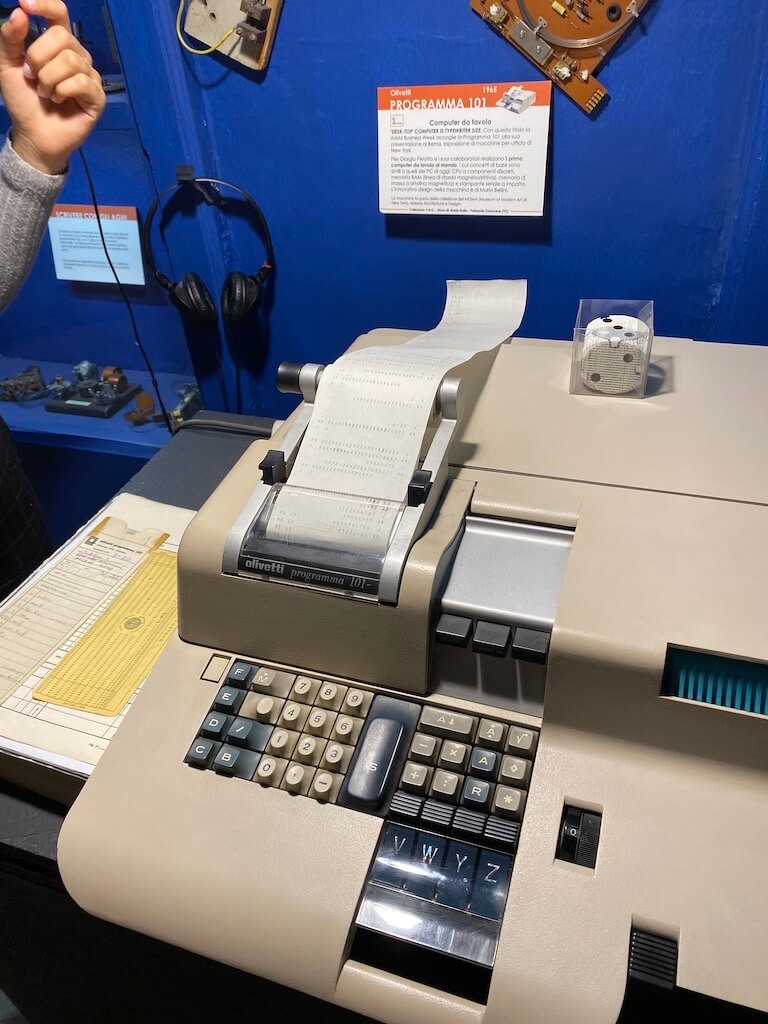
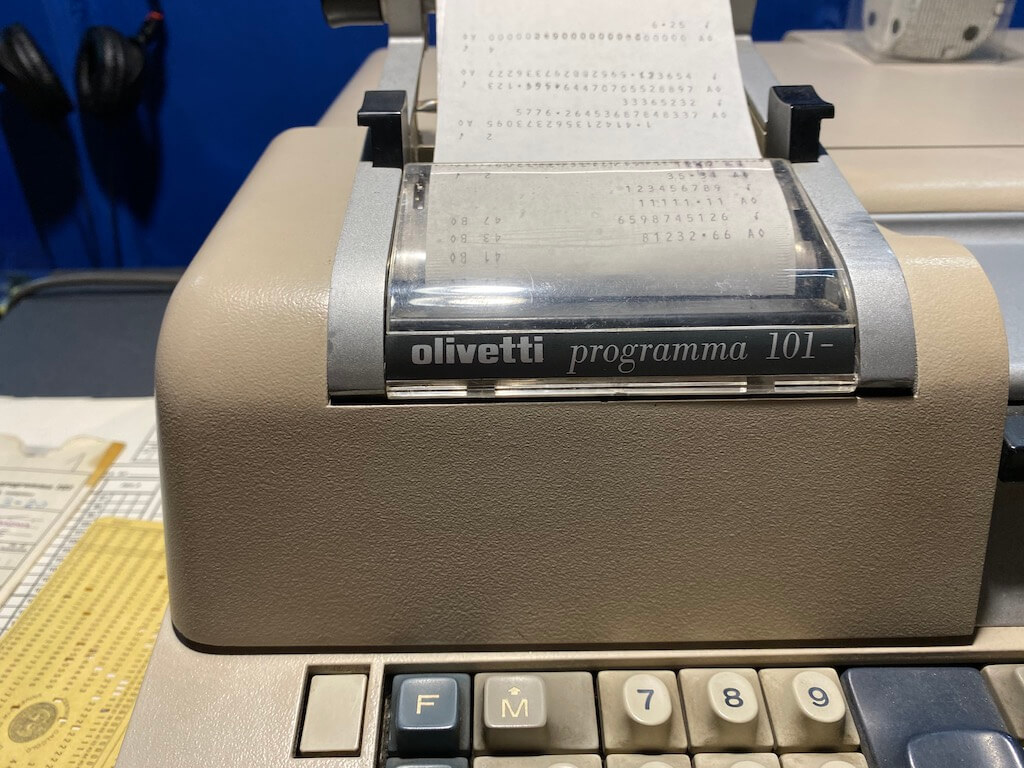
Beside it, there are also the specification and code of Programma101. Code, if you look closely, there was also a punch card of FORTRAN.
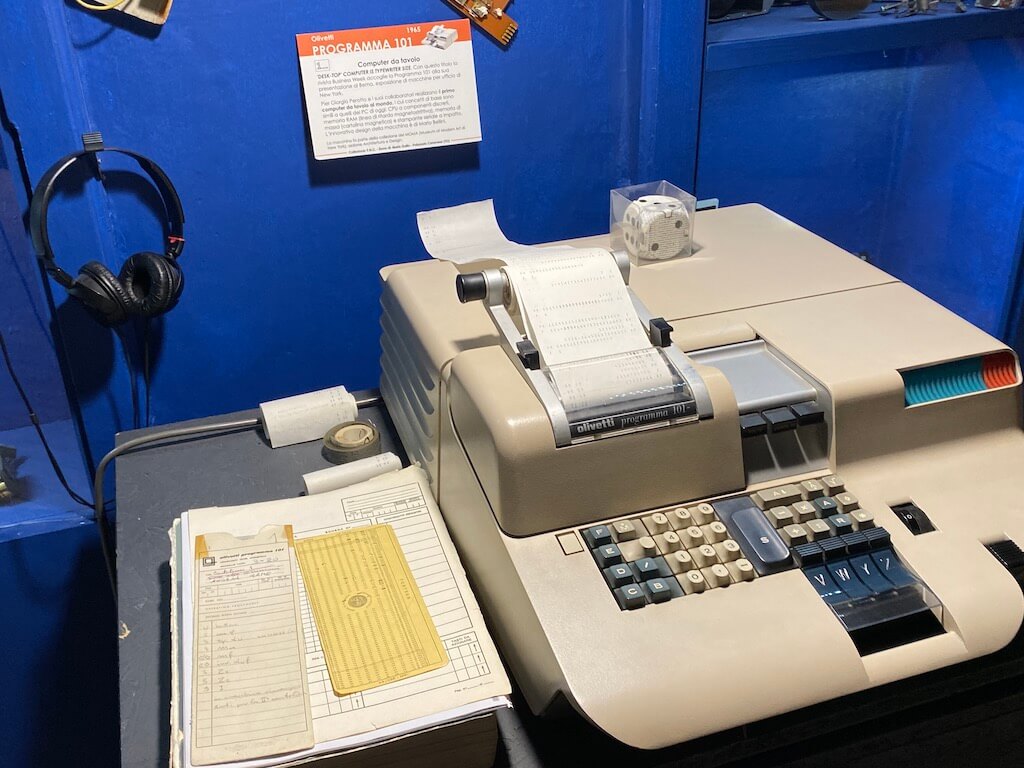
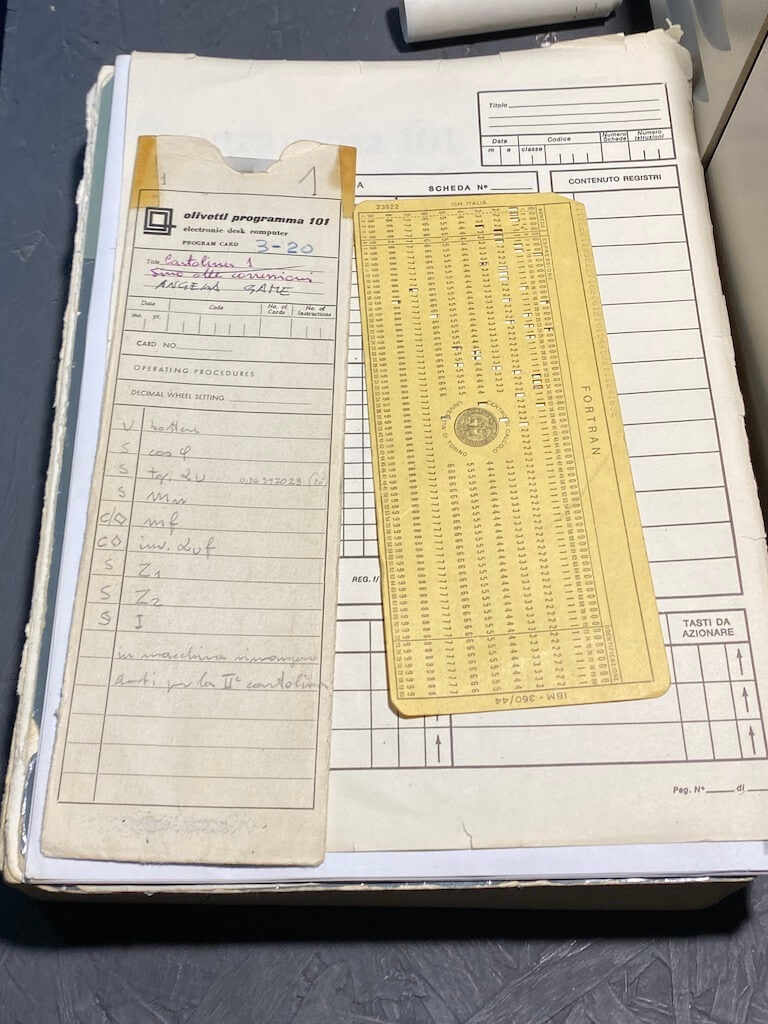
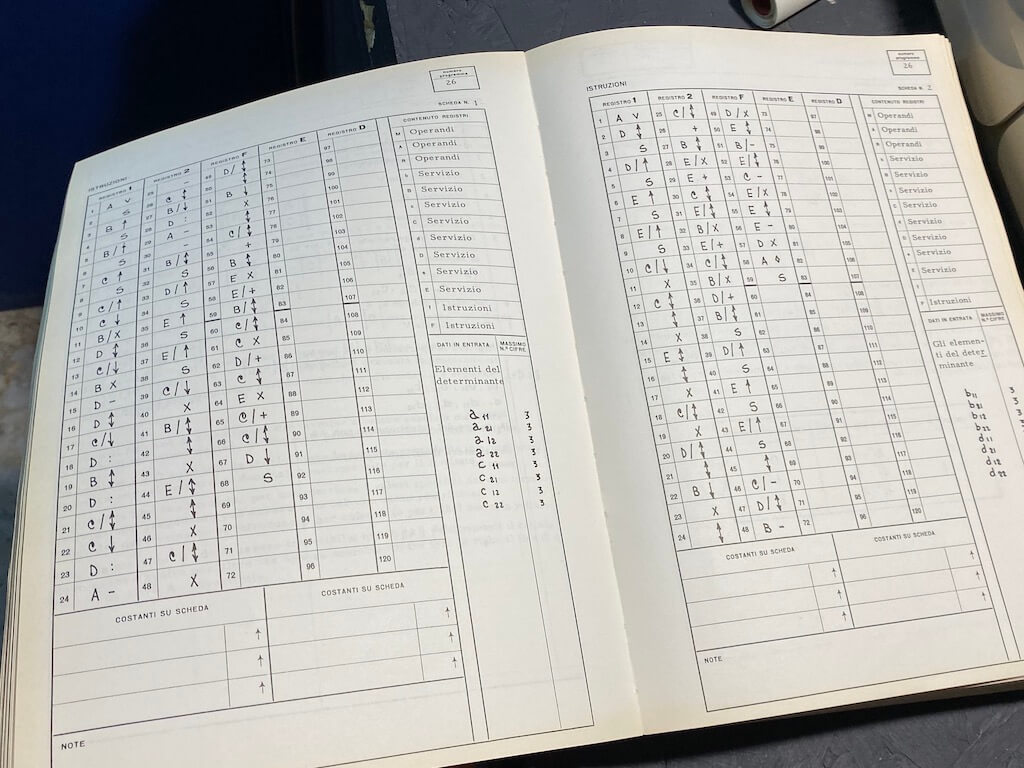
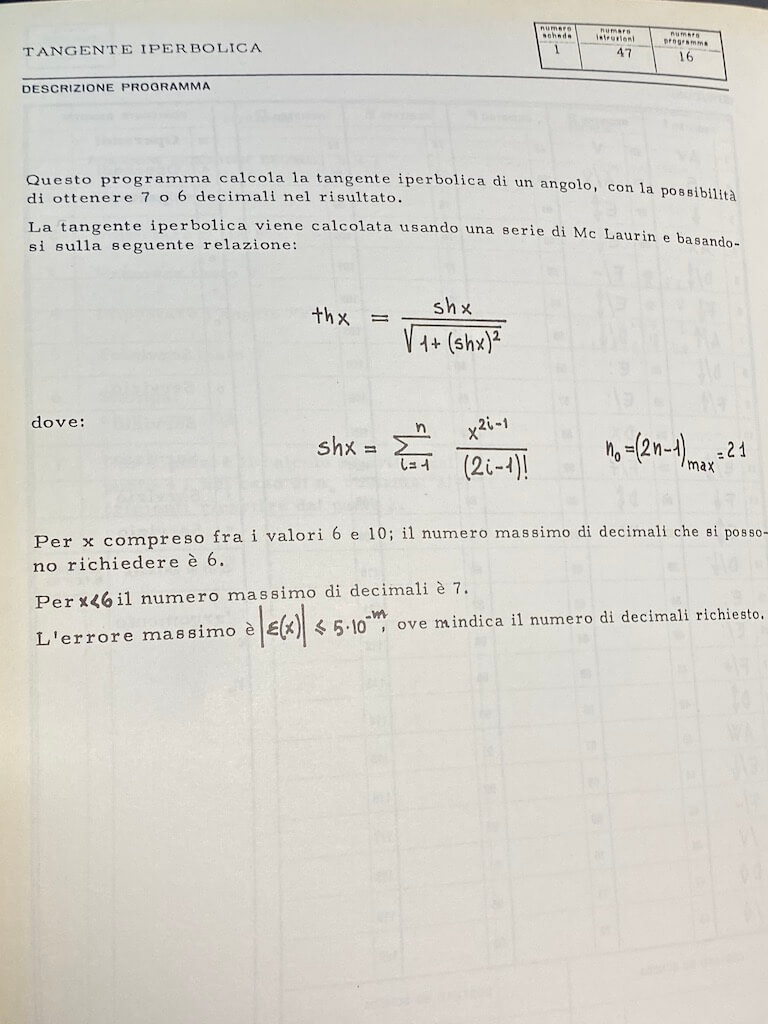
After that, he worked on desktop computers and miniaturization of electronic calculators, and established a new era.
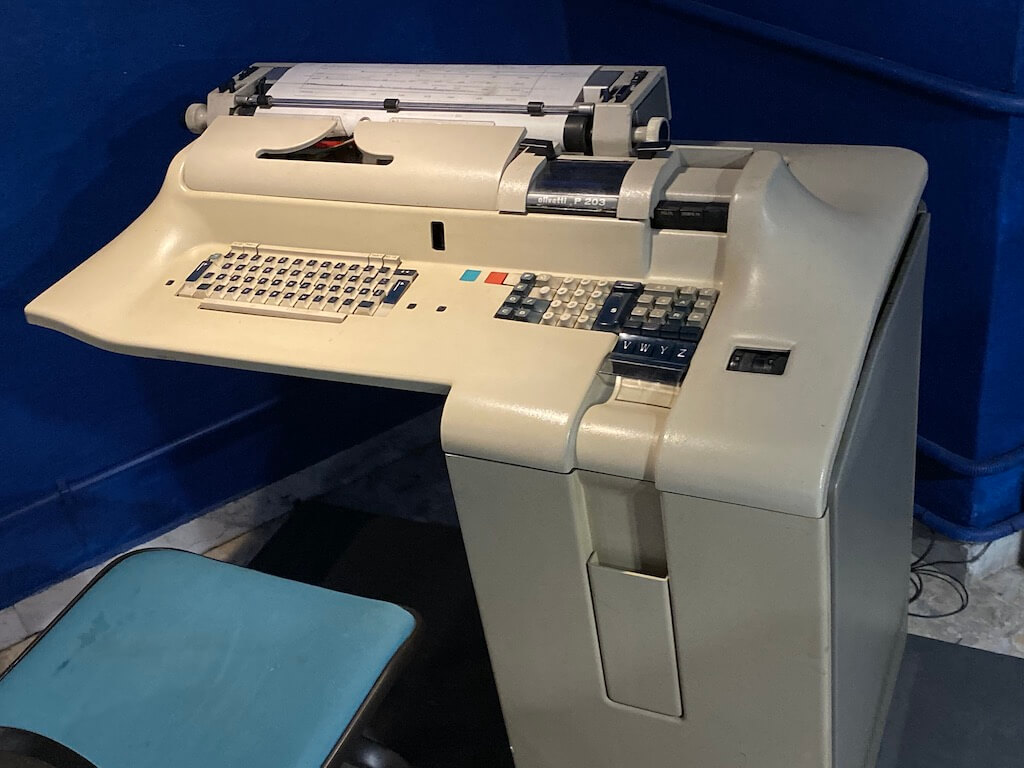
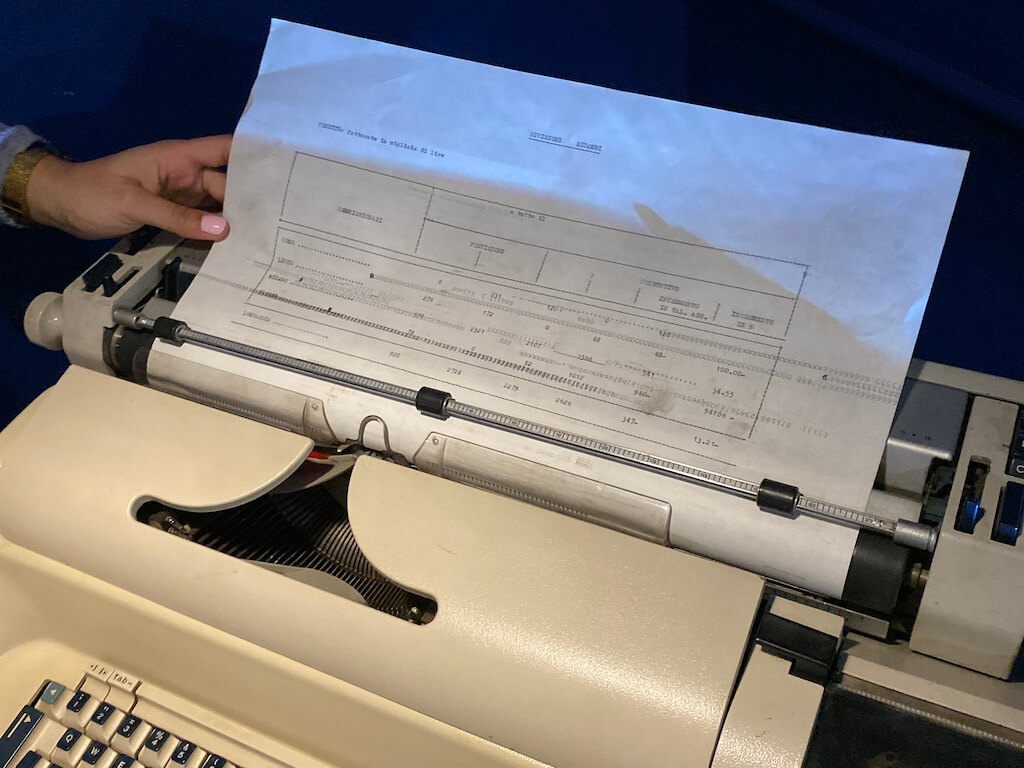
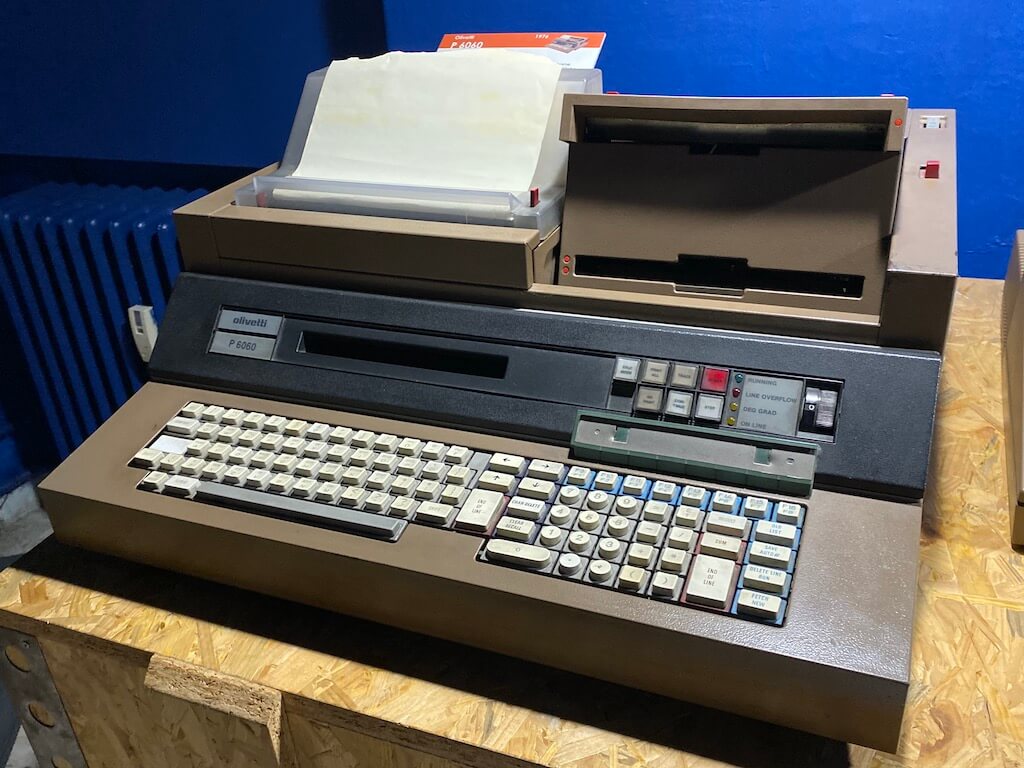
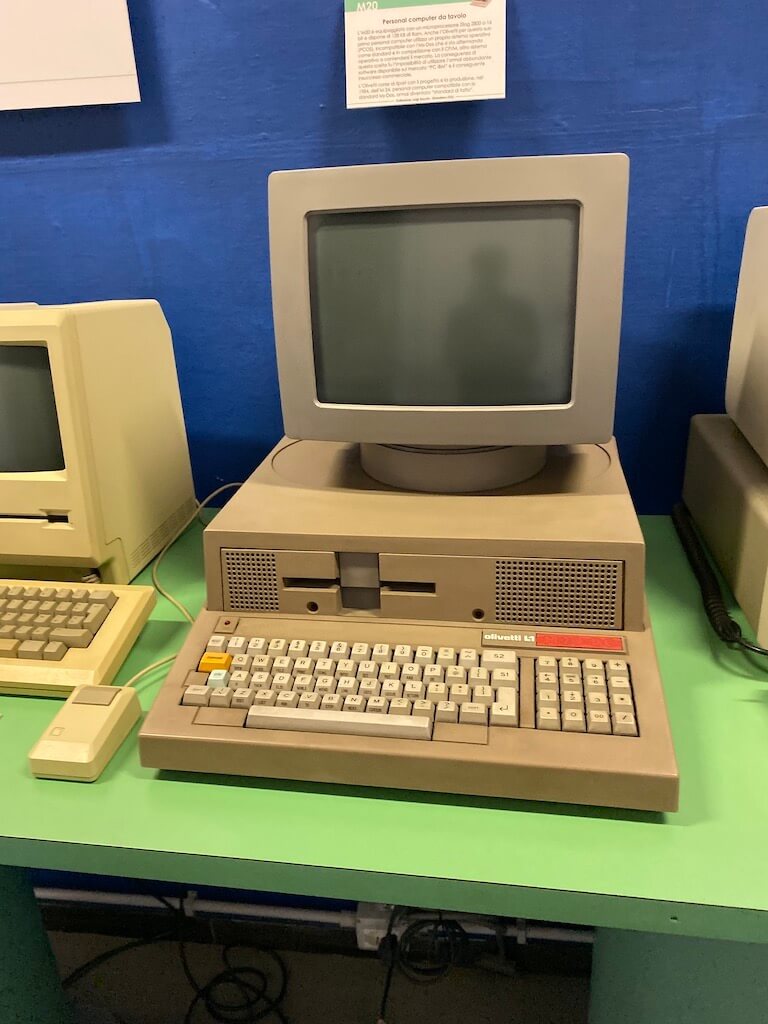
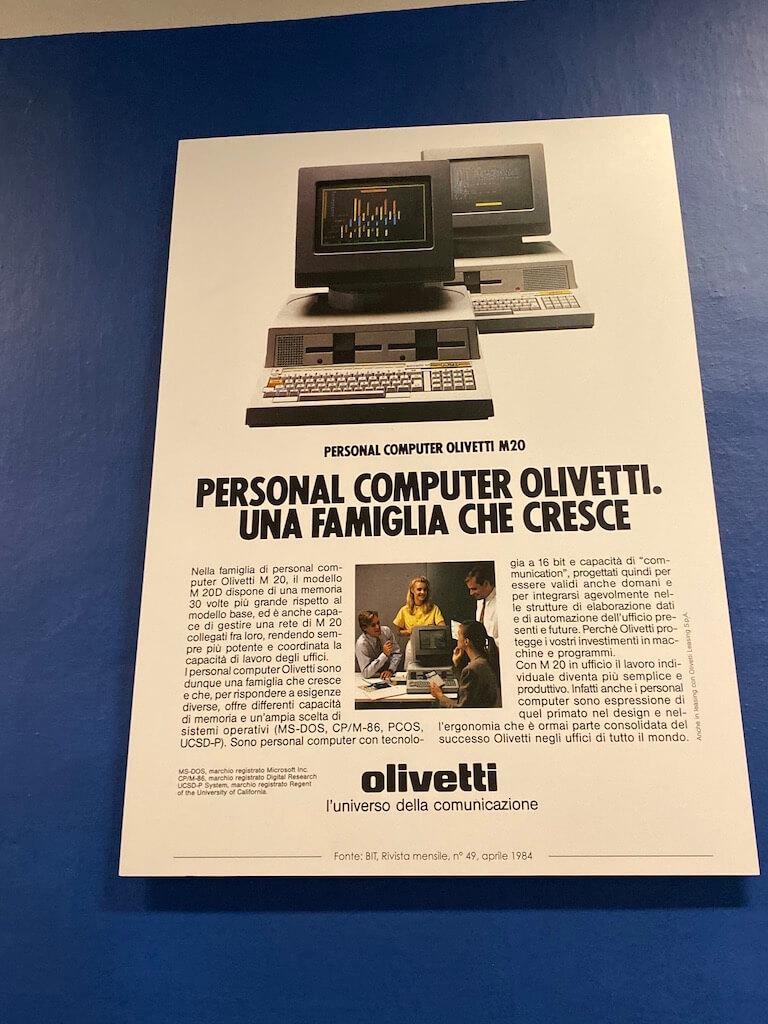
The shape of this area will be very close to what we see even today.
However, from around 1980, the momentum gradually waned as other companies such as IBM and Apple responded.
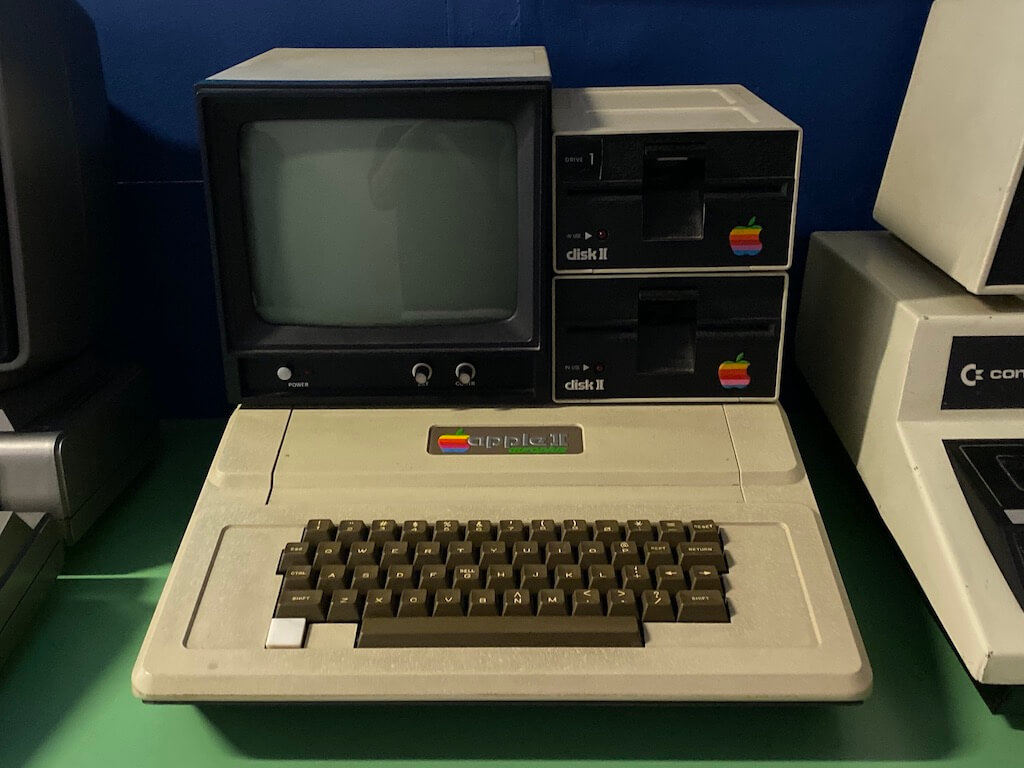
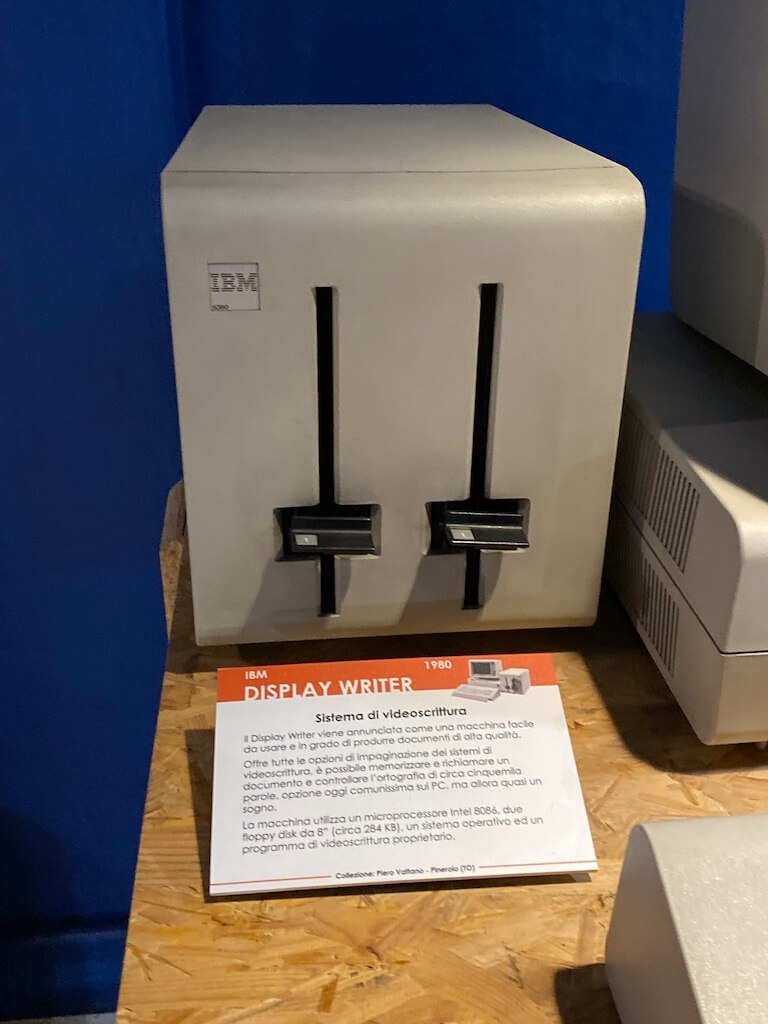
Then, in 1997, the company withdrew from the PC business and was absorbed into the Italia Telecom Group in 2003. However, it still survives as a system solution company today.
Education for local children
Now, this museum has a school-like atmosphere, but it is actually still used as a place for computer education. It was explained to us that the museum regularly holds educational programs for children.
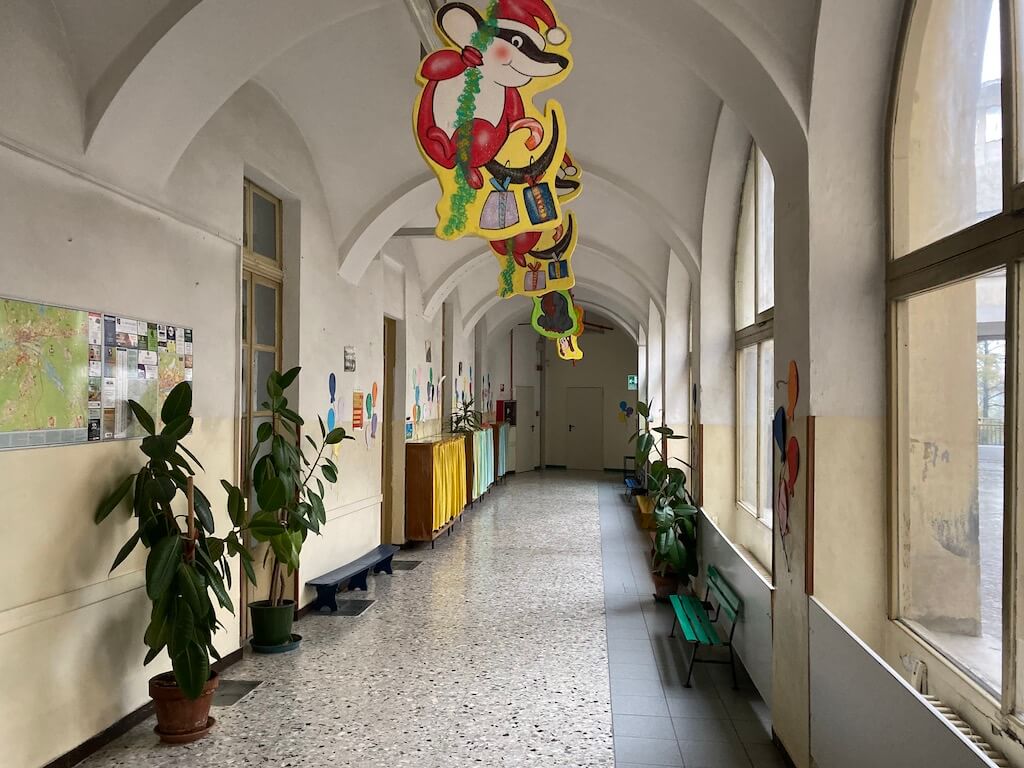
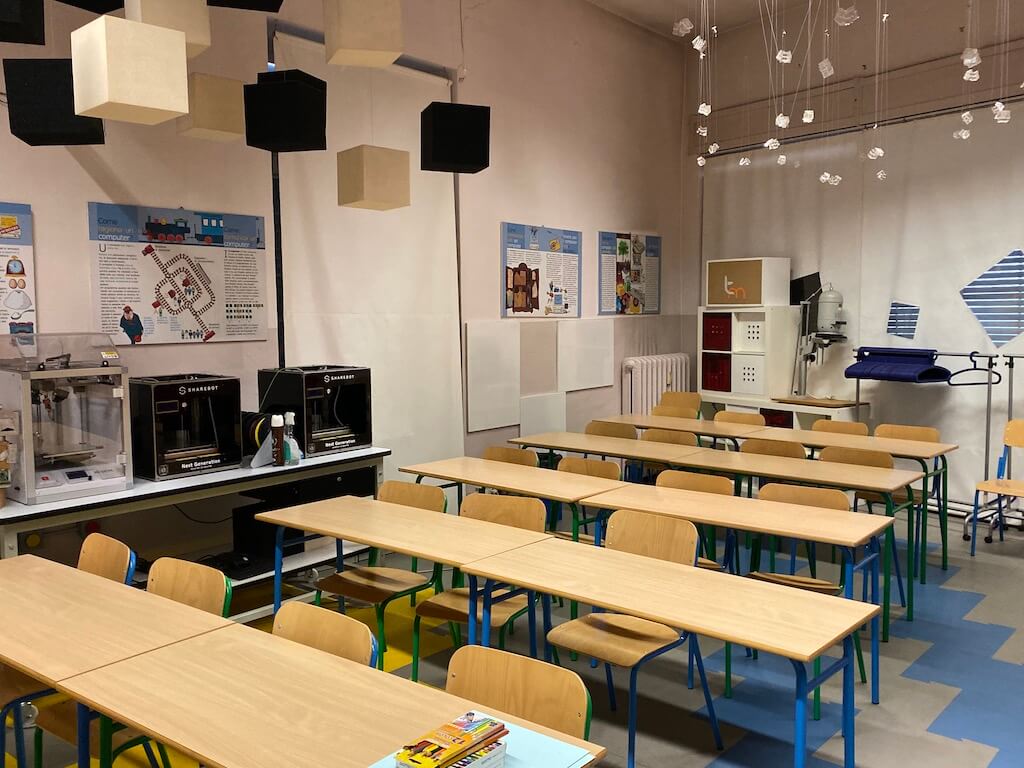
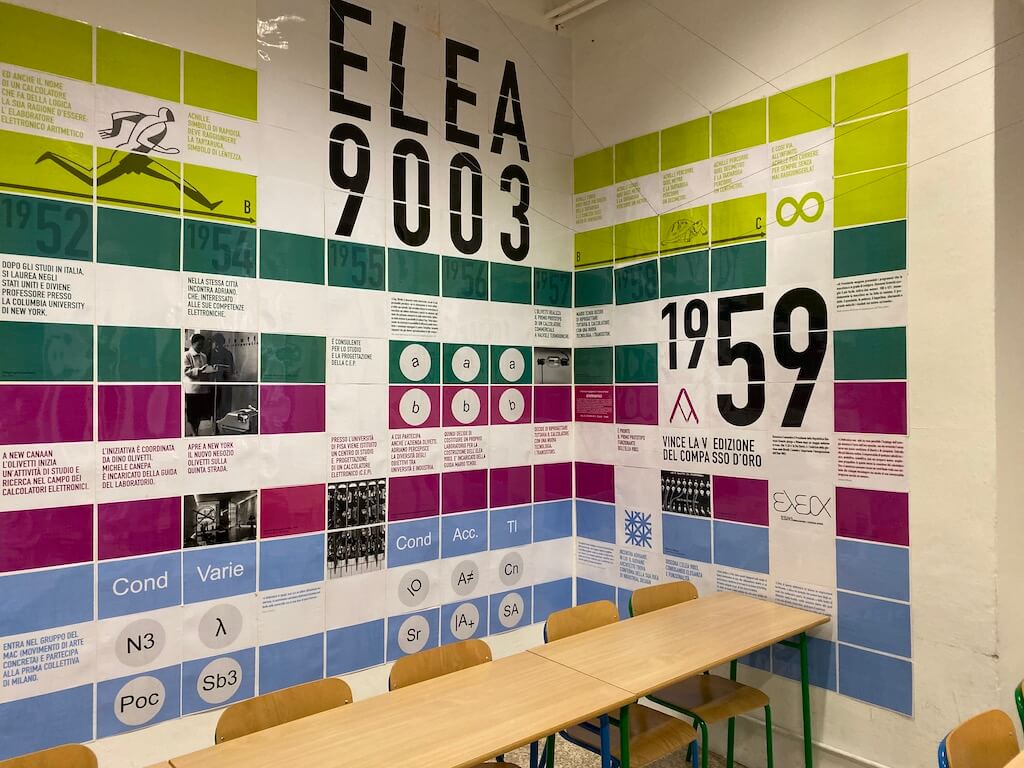
They have a classroom like this, where they teach programs and so on. If you look carefully, you can see a 3D printer in the back. If you look closely, you can see that this 3D printer is also made by Olivetti.
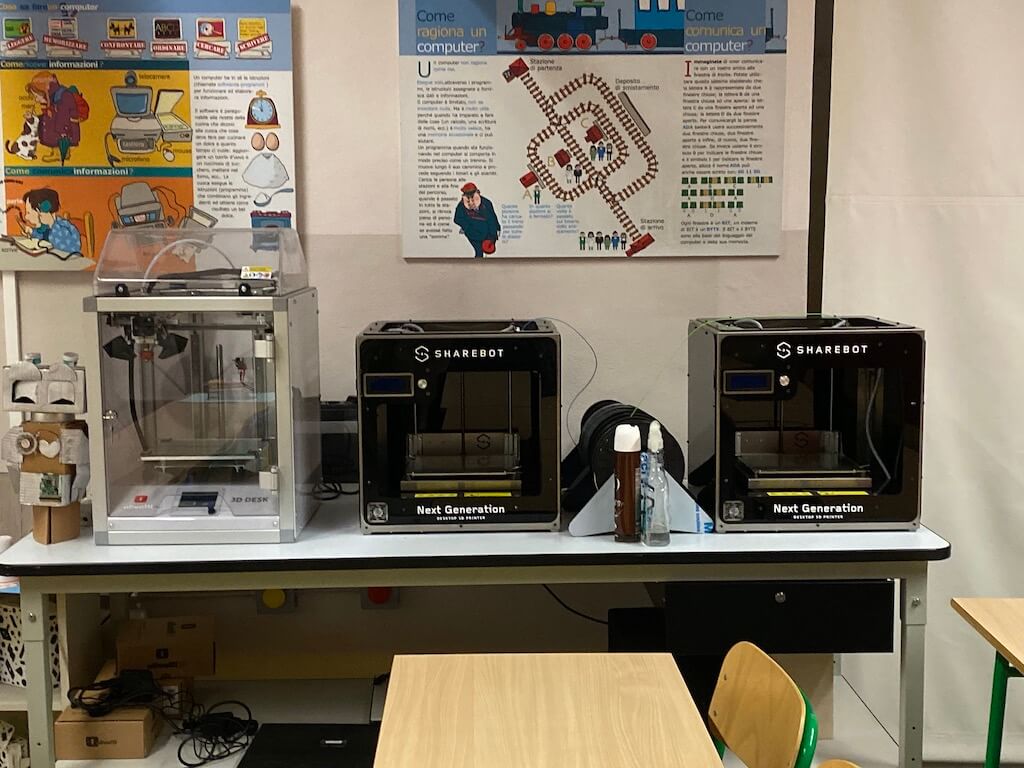
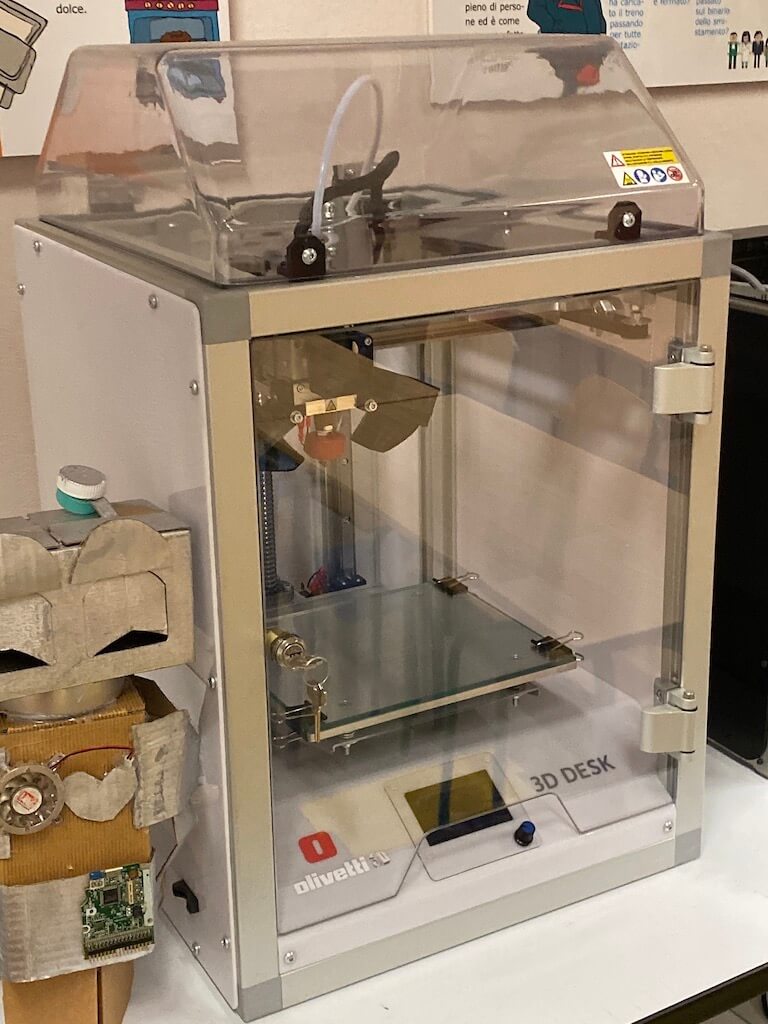
According to the information of the lady who guided us carefully, a new museum is going to be built in the area where the head office of Ivrea is located (south side of the city across the river), and in the future (next year, 2020, I think she said), the function of this museum will be transferred and this place will be closed. But I couldn’t find such information on the web at the moment.
In any case, I can say that it was a precious experience to listen to the stories in this small place like a classroom of an elementary school, and I would like to revisit again even if not, especially if the new museum is built. The old town of Ivrea is also beautiful and I would love to stay in the city then.
I have visited nearly 250 World Heritage Sites, and I believe this was one of the top ten most enjoyable and memorable of them all.


